Discover BiggerPockets Business Podcast
BiggerPockets Business Podcast

BiggerPockets Business Podcast
Author: BiggerPockets
Subscribed: 4,473Played: 104,229Subscribe
Share
© Copyright © 2019 BiggerPockets Inc. All Rights Reserved. Disclaimer: The information contained in this podcast is for general information purposes only. In no event will we be liable for any loss or damage derived from the information provided.
Description
Welcome to a real-world MBA, where entrepreneurs guide you through what it really takes to start, scale, and sell your own business.
Your hosts: J and Carol Scott, who left careers in corporate management to launch their own house-flipping business. Every Tuesday, you'll meet a new guest and learn actionable tips for hiring, firing, marketing, raising capital and more.
So whether you're looking to boost profits or bring a new idea to life, you'll come away informed and inspired. Tune in, and learn how to treat your business like a business!
107 Episodes
Reverse
Successful business owners are addicted to building businesses, sometimes to their folly. For someone like Codie Sanchez, this isn’t a problem, but a superpower. Codie is a journalist, a venture capital partner, an angel investor, and an entrepreneur. She loves, as she puts it, “building herself out of a job”, which means creating businesses with huge potential, getting a team in place, and heading on to better things.
Now, managing many millions of dollars, she has to look into which businesses are worth capital investments. Codie often advises business owners to act out of confidence, not fear, and consistently hire people that are better at their jobs than them. She places a very high value on having employees and workers who are competent and can help the team grow (as any smart business owner should).
Codie mentions the most profitable skill of today and how she’s using that specific skill to grow her newsletter, Contrarian Thinking. She argues that in today’s society, the top level of hierarchies for time freedom and ideological freedom is financial freedom. If you can decide what you do, where you do it from, what you can and can’t say, and how to live your life, you have the ultimate freedom available.
This episode delves not only into the life of a VC, but how small businesses can keep their loyal customers, grow their audiences, and repel those who aren’t a good fit for them. Regardless of the size of business you have, Codie presents great arguments for everyone about developing yourself, your business, and your mindset.
In This Episode We Cover
Laying the foundation of businesses and “building yourself out of a job”
How to extract yourself from your business and empower long-term success
Contrarian thinking and why it’s a crucial skill in today’s society
How to start a “high margin, low people” business
The one skill you should start building upon today
How to make your audience loyal and push away those who won’t like your offering
And So Much More!
Links from the Show
BiggerPockets Forums
Entourage Effect Capital
Contrarian Thinking Playbook
Check the full show notes here: https://www.biggerpockets.com/bizshow105
Learn more about your ad choices. Visit megaphone.fm/adchoices
It’s hard for real estate investors to get started, especially without a mentor, a background in real estate, or an existing network. Many of those interested in buying profitable, cash-flowing real estate are busy with their 9-5 job or even running their own business. This was at least the case for landlord and founder of Doorvest, Andrew Luong, when he talked to his friends about buying rental properties.
Andrew had a passion for real estate and knew that it was one of the best ways to make residual side-income. When he chatted up friends about real estate, they were interested too. Andrew would send them to agents, property managers, show them profit margins, and more. After a few months when Andrew would ask his friends how their real estate was going, they would reply “I didn’t have time to do any of it, will you just do it for me?”
Just like that, Doorvest was born. Doorvest allows aspiring investors, regardless of where they’re at in the world, to purchase renovated, cash-flowing properties with management fully built-in. Not only does this help make a potential landlord’s life much, much easier, it also lowers the barrier of entry for anyone trying to get into real estate!
In This Episode We Cover
Resisting lifestyle creep so you can invest in your assets and businesses
Letting your day job subsidize the other business opportunities around you
Why most people won’t pursue real estate investing
Capitalizing on the leads you get, and making it as easy as possible for them to purchase/invest
Building systems and processes so you can be fully remote when running your business
Using existing data to make your real estate search more profitable
And So Much More!
Links from the Show
BiggerPockets Forums
Turo
GetAround
Ebay
BiggerPockets Forums
BiggerPockets Events and Happenings
Check the full show notes here: http://biggerpockets.com/bizshow104
Learn more about your ad choices. Visit megaphone.fm/adchoices
What does it mean to be credible? Are you showing up and providing for your customers, your partners, and the world as a whole? These are questions that today’s guest, Mitchell Levy has been asking. Mitchell is an expert on credibility and is trying to make not only business, but the world a more credible place to live and work.
Mitchell has been working in Silicon Valley for over 30 years. When he left his last job at Sun Microsystems, he did right at the cusp of the dot com and ecommerce era. He became an e-commerce consultant and started selling SEO packages. Then he created executive business programs for top colleges, ran multiple CEO groups, started a publishing company, and wrote over 60 books!
To find clarity and credibility, Mitchell says that you need to find a customer's CPoP, the customer’s point of pain. When you can accurately find your customer’s CPoP, you can change the way you speak to them, you can see what they want, and most importantly, you can tailor your business to fit their needs. This type of credibility goes beyond just your business. You should also be known as credible within your circle of influence and online, Mitch shows you how to get there!
In This Episode We Cover
Why credibility is so important in today’s day and age
Knowing who your audience is so you can solve their problems
Finding your customer’s point of pain
Making the world a better place through credible business
How to make your online presence and LinkedIn stand out
And So Much More!
Links from the Show
BiggerPockets Forums
Clubhouse
BEing Seen & BEing Heard as a Thought Leader! Ted TalkX
EZNow
Thinkific
Linkedin
J's Linkedin Profile
Check the full show notes here: https://www.biggerpockets.com/bizshow103
Learn more about your ad choices. Visit megaphone.fm/adchoices
Many business owners and entrepreneurs have read books like Traction and Rocket Fuel, both of which talk about how to build a successful business, partnership, and how to use the EOS (entrepreneurial operating system). Today we have on the author of both those books, and a new book Entrepreneurial Leap, Gino Wickman.
Gino always had the entrepreneurial drive in him, but wasn’t able to label it for a long period of time. He went to work out of high school and found himself transforming his family business into something that was not only profitable, but would sell for a high price. Gino learned that his “gift” was helping entrepreneurs make their businesses more lean, efficient, and profitable.
We walk through many different components of being an entrepreneur, such as the six key traits of successful business builders, the eight critical mistakes entrepreneurs make, and how to know where you’re at on the “entrepreneurial range”. Gino argues that although many people want to be entrepreneurs, it may not be the most logical decision for them. Likewise, many of those who are successful at corporate jobs may be better served leading their own teams. There’s only one way to find out, get Gino’s new book!
In This Episode We Cover
What the EOS - Entrepreneurial Operating System is
How to know whether or not you’re a natural entrepreneur
The entrepreneurial range and where you may stand on it
The 8 most critical mistakes of entrepreneurs
How getting sidetracked can derail a successful business
Whether or not you’re a “partner person”
And So Much More!
Links from the Show
BiggerPockets Forums
Entrepreneurial Leap Assessment
Elon Musk
Ray Kroc
Jeff Bezos
Steve Jobs
Entrepreneurial Leap Biz Match Tool
Entrepreneurial Leap Cheat Sheet
Check the full show notes here: https://www.biggerpockets.com/bizshow102
Learn more about your ad choices. Visit megaphone.fm/adchoices
We buy and sell a lot of different assets like houses, stocks, and even bitcoin (sometimes). But what about buying and selling businesses? Business acquisitions can seem like an entirely different world, but they aren’t too different from the regular buying and selling of assets we do every day.
Today’s show features Nigel Guisinger, who you may remember from the wildly popular episode that aired almost exactly a year ago. Last time Nigel talked about buying businesses using seller financing, and now he’s brought a real-world example! With Nigel is his partner and mentee, Sean Ade.
Earlier in 2020, Sean was looking for a business he could buy and take over. Sean had been getting into house plants during the early COVID-19 lockdowns and looked to see if nurseries were worth buying. After sending some lackluster deals to his partner, Nigel, he was notified that a terrarium shop was closing. Sean consulted with the owner and sent the profit and loss statement to Nigel who confirmed that it was a winner
Sean and Nigel used some very creative financing to get a $1,500,000 business under contract for just $10,000 out of pocket. This episode isn’t just an eye-opener for those who overlook buying businesses as assets, but also for those who don’t know what's possible in financing a business purchase!
In This Episode We Cover
The opportunity of the “business crash” happening right now
Looking for businesses that fit with your interests
The importance of having cash flow from day one of ownership
Profit and loss statements, equity, and valuations of businesses
Small Business Administration (SBA) loans
When and how to hire your first employee after you buy an existing business
And So Much More!
Links from the Show
BiggerPockets Business Podcast 51: Business Opportunity Is Knocking… Answer the Door! With Nigel Guisinger
GoBundance
BizBuySell
Venmo
Paypal
Square
Instagram
Check the full show notes here: http://biggerpockets.com/bizshow101
Learn more about your ad choices. Visit megaphone.fm/adchoices
How does a 27 year old become the CEO of a major online brand? Not only that, how does a 27 year old take an online brand, build upon it, and create something better? Well, if your name is Scott Trench, the answer is: a lot of hard work, some tough decisions, and looking out for the customer whenever possible.
Before he was head honcho at BiggerPockets, Scott was a financial analyst in the corporate world. He wasn’t too happy, and spent all his free time finding the best (and quickest) ways to reach financial freedom so he didn’t have to go to a 9-5 for the next 40 years of his life. Without many investments or rental properties, Scott was introduced to the founder of BiggerPockets, Josh Dorkin.
Josh saw something in Scott, and hired him as the third employee of BiggerPockets. Scott was given the title “Director of Operations” which really meant taking care of the finances for the business and making sure everyone had their coffee. Scott started acquiring more properties as he worked with Josh and later became such a crucial part of the BiggerPockets family, he was promoted to president. When Josh decided to step away to be with his family, Scott became CEO.
In the 2 years he’s been CEO, he’s had to make some tough decisions such as changing the overall management structure of the company. This has helped BiggerPockets grow into a website and business that over 2,000,000 people use and love. When Scott isn’t running BiggerPockets, he’s playing rugby, gaming on his PC, or having a beer with a fellow investor!
In This Episode We Cover
How Scott used the principles outlined in Set for Life to reach financial freedom
Taking a chance and joining a very early stage startup
The importance of having very low expenses when making hard decisions
How to work with a private equity firm when they acquire part of your business
NPS (net promoter scores) and why they’re crucial for continual business improvement
Driving value for shareholders, without tarnishing your brand for customers
Scott’s new book First Time Home Buyer
And So Much More!
Links from the Show
Mr Money Mustache
BiggerPockets Business Podcast 01: How to Turn a Hobby Into a Booming Business (Then Get Your Life Back)—The BiggerPockets Story With Joshua Dorkin
BiggerPockets Business Podcast 18: How to “Have It All” by Living with Intention with Brandon Turner
BiggerPockets Real Estate Podcast
BiggerPockets Money Podcast
McCarthy Capital
BiggerPockets Publishing
BiggerPockets Podcast 297: Mastering the Decision-Making Process with Business (and World Series of Poker) Champion Annie Duke
BiggerPockets Real Estate Rookie Podcast
BiggerPockets Marketplace
Pier 1
Check the full show notes here: http://biggerpockets.com/bizshow100
Learn more about your ad choices. Visit megaphone.fm/adchoices
Data can be a confusing topic for most people, but what about when it has to do with your business? How is your business using data? Are you even using data at all? Dr. John Johnson, expert witness, professor, and founder of Edgeworth Economics and Edgeworth Analytics argues for businesses using data to grow.
Dr. Johnson understands why so many people fall victim to studies and findings that may not be entirely accurate. He talks through confirmation bias and how we, as consumers, can find the red flags when listening to interpretations of data. We are urged to take time to think before we accept statistics and data as fact.
He also dives into how he started his own firms, Edgeworth Economics and Edgeworth Analytics, and how he himself uses data to track his firm’s growth, recruiting, and revenue. Often, his firm is hired to find why a product or group of products is or isn’t selling, which strategies make the most profitable sense, and how a business can change to ensure more sales. Aside from that, Dr. Johnson also acts as an expert witness in corporate lawsuits, sifting through the data to find out what is really true, and what has been inflated.
There’s no mistaking that data is important for modern businesses, but what’s more important is how you use and interpret this data to come up with accurate conclusions. His book, Everydata: The Misinformation Hidden in the Little Data You Consume Every Day goes into the data all around us, and how we can sift through it to find truth.
In This Episode We Cover
The expert witness and testimony field
Checking your own bias and making sure your decisions are based on accurate data
Understanding the context around the data that is being recorded
Tracking growth and recruiting so you know where you’re succeeding
Using common sense when looking at different data points
And So Much More!
Links from the Show
Edgeworth Economics
Edgeworth Analytics
The Data Blueprint
For the Business Podcast Listeners
Check the full show notes here: http://biggerpockets.com/bizshow99
Learn more about your ad choices. Visit megaphone.fm/adchoices
How do you build a business that ties in healthily with your life? While you’re trying to bring in millions in revenue, are you there for your children, your spouse, your loved ones, or even yourself? If not, why are you building the business at all? This was a main topic of discussion for the hosts of the Empire Building Podcast, Wendy Papasan, Sarah Reynolds, Seychelle Van Poole, and Vija Williams.
Wendy, Sarah, Seychelle, and Vija have all grown massive real estate empires throughout their own respective markets. Now, they teach others to do the same through their podcast and their live event, Amplify. We talk through some key topics like how all these successful women juggle their business/personal lives, when the right time to say “no” is, how to grow your business, how to hire successfully, and knowing your numbers.
All agree that a big part of being successful is saying “no”. That doesn’t mean turning down everything, but it does mean saying no to things that will interrupt your time with family and friends. Sarah, specifically, talks about how she was unable to put her kids to bed most nights of the week, since she was coming home at 10PM from the office. What did she do? She made it a rule to leave by 5PM. This not only helped her be there for her daughter, but allowed her team to take bigger roles.
These four women all personify what it means to be successful in business and in life. Not only that, they can help you too find the best way to build a “big life” not just a big business.
In This Episode We Cover
Answering the classic “how do you do it all?” question
Running 7-figure real estate empires
Being super selective with what you say “yes” to
Defining your personal mission and looking at it daily
Learning the power of hiring so your business can build sustainably
Figuring out the profit/loss ratio of your life
And So Much More!
Links from the Show
Keller Williams
BKCO Escrow
AMPLIFY Event
BiggerPockets Business Podcast 06: How to Manage Your Time Like a Millionaire With Jay Papasan
Papasan Properties
KWKC
Check the full show notes here: https://www.biggerpockets.com/bizshow98
Learn more about your ad choices. Visit megaphone.fm/adchoices
Rocky Lalvani came to the United States as a small child. Like many immigrants, Rocky’s parents arrived with a small amount of money, around $25. As hard workers, they were consistently talking to their friends and relatives about how to make more money so they could have the coveted “American Dream”. This is how Rocky started his education in money and finances, and what pushed him to become wealthy.
Now, Rocky teaches businesses and entrepreneurs the Profit First system, which is exactly what it sounds like. A business usually calculates profits as sales - expenses = profits. Rocky argues that this is an inefficient way to see your true profit, and what the actual calculation should be is sales - profit = expenses.
You may be asking how to minimize expenses so the above formula can work. The solution to this isn’t that you need to manipulate the numbers so your expenses equal the difference between your sales and your profit, but that you need to minimize your expenses when possible. But what about fixed costs? What about startup costs? As Rocky puts it, you need to have a customer before you start having expenses, something businesses rarely realize is not only possible, but profitable.
Rocky also goes into his #1 tip for accumulating wealth and dives deep into why the phrase “the rich get richer” tends to be true. He also goes into how businesses can allocate their profits correctly, have the accurate amount for taxes, and pay themselves first so they’re making money while their money makes money!
In This Episode We Cover:
How Rocky became a millionaire through compound interest
What the Profit First system does for businesses and entrepreneurs
Harnessing the 40% of your work that creates most of your profit
Dismissing the notion that you need to spend more to grow
How real estate investors can use Profit First in their businesses
Setting up separate bank accounts and allocating your money
And So Much More!
Links from the Show
Dave Ramsey
Home Depot
BiggerPockets Business Podcast 06: How to Manage Your Time Like a Millionaire With Jay Papasan
BiggerPockets Business Podcast 30: How to Guarantee Profit From Day 1 with Mike Michalowicz
Check the full show notes here: http://biggerpockets.com/bizshow97
Learn more about your ad choices. Visit megaphone.fm/adchoices
There are often standard prerequisites for starting a company. First, you need to go get a degree for a certain field, then you need to find a job that is in that field, then you need to stay in that job for 10 years to gain connections, and finally, you can start a business. Jeff Fenster, serial entrepreneur and founder of Everbowl thought this linear path was a bit outdated. If anything, Jeff thought it was slightly backwards!
Jeff planned on becoming a lawyer in college, but once he had his first child, realized that being away from home wasn’t for him. He got a sales job and became the top sales rep in his company. When the company started dangling bonuses over his head, he felt uncomfortable and knew that he needed to start his own thing.
He ended up founding a company that directly competed with his former employer, then sold that company, started another, sold that one, started a few more, sold those companies, and many companies later, he started Everbowl, a craft acai bowl and superfood company based out of San Diego.
If variety is the spice of life, then Jeff is doing things right! He argues that the best thing you can do is go into a completely new industry, focus on a problem that competitors are overlooking, build systems to make the industry better, and carve out a portion of the market. This strategy has worked well for him as he’s profitably sold and started many different companies. If you want his breakdown on his formula to success, you’ll have to tune in to this episode!
In This Episode We Cover:
Why industry experience isn’t necessarily a prerequisite for success
How “fresh eyes” disrupt stagnant markets and industries
What to do before you try and solve a business’s problem
Developing systems that beat competitors for you
Addressing the not-so-obvious needs of customers
Focusing on company culture and core values when building a business
Leveraging your “relationship capital” for future opportunities
And So Much More!
Links from the Show
Amazon Alexa
Blockbuster
Netflix
Blackberry
iPhone
Best Buy
Amazon
Ikea
We Build Stuff
Neil Patel
Udemy
Etsy
Fiverr
Freelancer.com
Check the full show notes here: http://biggerpockets.com/bizshow96
Learn more about your ad choices. Visit megaphone.fm/adchoices
Building businesses from the ground up isn’t easy. It requires patience, hard work, and most importantly, a solid team. Without trust in that team, the product, the company, and the vision can completely disintegrate. When a team flourishes, you can create a massive success, where everybody wins.
Tucker Merrihew and Elliot Smith have been working throughout the past year on Call Magic, a service that helps uncover leads for real estate agents, wholesalers, flippers, and other real estate professionals. Elliot originally teamed up with Cole Ruud-Johnson (who you’ll hear on our Real Estate Podcast, very soon), and everything was running well, but they realized they needed a leader. After Elliot talked to Tucker about the project, Tucker was in.
There was just one contingency: the product and the company had to be the best of the best. The three partners agreed to put their all into it, and respect each other’s work. Cole already had experience running an outsourced cold calling team, Elliot had years and years worth of real estate experience under his belt, and Tucker had the Real Dealz Podcast audience at his disposal.
Elliot and Tucker walk through setting up your business and your team for success, what to worry about and what to hold off on, hiring team members from overseas, and growing a business to scale, not fail.
In This Episode We Cover:
What to look for in a business partner/what to look for in an existing partnership
How to “dummy proof” your business
Managing, paying, and hiring workers that are overseas
How to have better cold call conversations that secure leads
Setting out to become the best of the best in your industry
Trusting your partners and letting them show their strengths when working together
And So Much More!
Links from the Show
BiggerPockets Real Estate Show
BiggerPockets Podcast 381: 5 Rules for Investing in a Down Market with Tucker Merrihew
Marketing Machines, Spec Houses, Flipping & Wholesaling | Podcast
BiggerPockets Podcast 255: Six-Figure Real Estate Investing in Just 20 Hours a Week with Elliot Smith
BiggerPockets Podcast 394: Making a 25 Deal/Year Business (and Marriage) Work… Together! with Elliot and Chrissy Smith
Apple
Tesla
Check the full show notes here: https://www.biggerpockets.com/bizshow95
Learn more about your ad choices. Visit megaphone.fm/adchoices
What does humor and business have in common? At first glance, not much, but after digging a little deeper, there’s quite a lot that humor can teach us about business. Peter McGraw, behavioral scientist, author of Shtick To Business and The Humor Code, and host of the Solo Podcast kept wondering why we find certain things funny. He decided to put it to the test in his lab, HRL, the Humor Research Lab.
Peter discovered that we often find things funny when they’re wrong, but okay. Threatening, yet safe. Things that make no sense, yet make perfect sense. Most importantly, you don’t want to be the person who thinks they’re funny, but actually isn't it. You have to think funny, not just be funny. You have to fight the status quo constantly, to make material that people will find outlandish, but true enough to laugh at.
But how does that relate to business? Peter brings some great business examples that followed the same flow of most comedy writing routines. Take AirBnB for example, when they first launched the idea, most people thought they were crazy. I mean, who would want to sleep in someone’s spare bedroom or mother-in-law suite for a weekend? It turns out, almost everyone in the world would.
These kind of outlandish but great ideas come through a process that Peter calls “Sh*t-storming”. Contrary to regular brainstorming, sh*t-storming is when you throw out crazy ideas, and sometimes, something will come out that is so crazy, it actually works. Besides AirBnB, Peter relates this to Tim Ferris’s cold calling method and the P90x workout system as just a few examples.
Comedy and business aren’t that far apart in the idea creation stage. Follow Peter’s advice and your business won’t get laughed out of your next meeting!
In This Episode We Cover:
The underlying theme of humor and why we find things funny
How writing jokes and creating businesses overlap
Fighting the status quo to create something that is great
How to create a “chasm” so your customers love you and you’re haters don’t
The importance of keeping an idea journal to write in
Saying yes to happiness, regardless of the financial outcome
And So Much More!
Links from the Show
Peter McGraw's TEDx Speech
Joel Osteen's Church
Tony Horton's Website
Jerry Seinfeld: 23 Hours to Kill
Airbnb
Tim Ferriss's Blog
Barry's Bootcamp
Check the full show notes here: https://www.biggerpockets.com/bizshow94
Learn more about your ad choices. Visit megaphone.fm/adchoices
An author, a CTO, and a champion ballroom dancer walk into a podcast...it’s Mark Herschberg! Mark is a man of many talents, graduating from MIT, becoming a champion in ballroom dancing, and later becoming a COO and CTO for multiple startups. How does someone do it all, and do it all so well?
After college, Mark was working in computer science and began having to hire new team members on board for the companies he worked at. He realized that many new hires had technical skills, but didn’t have skills that correlated to becoming better leaders or teammates. Mark saw that there was a whole realm of soft skills that weren’t being taught to graduates coming into the workforce. So he partnered up with MIT to develop a course on acquiring these skills and became a lecturer. He’s been teaching this material for the past two decades!
As the classes went on, Mark decided to write some notes that every student would be able to use throughout the class. After writing close to 100 pages, Mark realized that this wasn’t just a set of notes, this was a full-on book. This became The Career Toolkit and taught Mark not only how to write, but the challenges of publishing and marketing a book.
If you’re a solo entrepreneur, a CEO of a startup, regular employee, or still looking for career opportunities, Mark advises that you create a career plan, outlining what your life, career, and future will look like. How can you accomplish the goals you’ve set and what do you have to do to put yourself in a beneficial position?
Maybe you’re shy or introverted and find it hard to talk to partners, maybe you want to know how to network in a post-COVID world, or maybe you want to know how to manage teams and lead a company to optimum efficiency and employee satisfaction. Mark does a fantastic job of answering these questions and more in a succinct and relatable way.
In This Episode We Cover:
Developing your soft skills like leadership and teamwork
The skills all entrepreneurial endeavors require
Why you need to stop treating your 1000th customer like your 1st customer
Creating a career plan (regardless of if you work in corporate or work for yourself)
Building your network and creating reciprocal benefits
Networking in a digital age and why you should always have business cards on you
And So Much More!
Links from the Show
Cognosco Media Resources
LinkedIn
Check the full show notes here: http://biggerpockets.com/bizshow93
Learn more about your ad choices. Visit megaphone.fm/adchoices
Negotiation is all around us, whether we see it or not. Whether it’s a business negotiation, an argument in a relationship, or convincing your child to eat their greens, you’re always negotiating. With us on today’s episode is Kwame Christian M.A. Esquire, host of the Negotiate Everything podcast and author of Finding Confidence in Conflict.
Most people think you have to be a lawyer to be an expert negotiator. Kwame argues that this isn’t true. Since we are constantly negotiating every day, we have the ability to level up our skills to become experts in debating and negotiating. He stresses that winning a negotiation doesn’t mean beating your opponent so they’re embarrassed at the end. It means giving you AND the opponent the ability to walk away from the situation with a win.
Kwame preaches “compassionate curiosity” as one of the best ways to research how an opponent may answer questions you present to them. Tie this with some creative problem solving, and you’ll come out of the debate a winner.
As real estate investors, this is especially key to our line of business. We’re constantly debating with sellers, buyers, appraisers and more to get outcomes that benefit us. But how can we suggest an outcome that makes the negotiating partner feel good and presents us with future opportunities? You’ll have to listen to find out!
In This Episode We Cover:
Why negotiating isn’t just arguing and how to find wins for both parties
Using “The Empathy Loop” as a tactic to have the other party feel heard
The 3 pillars of negotiation, and keeping them in mind when we debate
The biggest mistakes people make when negotiating
Research vs. preparation (when to use which for what)
Compassionate curiosity and seeing your opponents point of view
Maintaining your “form” throughout negotiation
And So Much More!
Links from the Show
Previous BiggerPockets Business Episodes
Finding Confidence in Conflict | Kwame Christian | TEDxDayton
American Negotiation Institute Guides (Gift)
Virtual Negotiation and Conflict Resolution Handbook (Gift)
Check the full show notes here: http://biggerpockets.com/bizshow92
Learn more about your ad choices. Visit megaphone.fm/adchoices
If you’re a new entrepreneur, it may seem like a dream to sell a business for millions of dollars. People like Chris Younger, make that dream a reality. Chris founded Class VI Partners, an investment bank that helps entrepreneurs plan and prepare businesses for sale. Chris will be the first to admit that selling isn’t an easy process, it takes time, patience, and a lot of documentation.
Chris compares selling your business to running a marathon: you need to be in it for the long haul to finish strong. He helps owners reach a price point that works for their future, and helps create the processes around selling that enable a new owner to carry the business to new heights. For many owners, success in selling comes from doing the hard work upfront, not putting it off for your future self (and employees) to deal with.
So why would an entrepreneur want to sell? Maybe it's personal timing and they feel like they’ve given the business as much as they possibly can. It also could be business timing, the business may be seeking a new change in direction. Or it could be buying timing, a buyer comes in with the right offer, the right ability, and makes the sale.
Whatever a reason for selling a business, a business owner needs to be prepared for their business to sell at some point. So even if you’re just starting out, hearing words of wisdom from Chris may net you a few more million dollars!
Check the full show notes here: http://biggerpockets.com/bizshow91
Learn more about your ad choices. Visit megaphone.fm/adchoices
You may own a small business, some rental properties, or are just tinkering with a new idea. Regardless of where you’re at in your entrepreneurial journey, you’re most likely trying to make something that will not only resonate with customers, but allow them to solve a problem in their life. So how do you make a product that accomplishes this to the fullest extent?
Today we talk to Ben Foster, founder of Prodify and Chief Product Officer at WHOOP. Ben has been in this space for a long time, working with big names like eBay and Opower. After his initial success at corporate he founded his consulting firm, Prodify and has since then worked with 70+ different companies all tackling a common goal: make a great product.
If you’re just starting out in your business, you may think the best course of action is to tack on as many useful features as possible into one product, but Ben warns against this. Companies that tend to do well with products are the companies that have a core competency and then build out from it.
Great products also take market input from the customers that matter most. That doesn’t mean only the top 10% of users for an app, that means the bulk majority of customers who use the app. This is where many product teams get it wrong, and as you’ll see in the interview, there are a lot more caveats in product management than originally meets the eye.
If you’re interested in product marketing, engineering, management or anything else related to building a great product, check out Ben’s book Build What Matters and of course, listen to this episode!
In This Episode We Cover:
What product management really is (and what the goal should be for teams)
The difference between products for sale and product management
What makes a great product team
How to achieve (and go after) product market fit
When to release the initial version of your product
Which opinions matter most when collecting customer data
Building an infrastructure so products can succeed from the start
Bad product traits to avoid when building out your product
And So Much More!
Links from the Show
Opower
E-bay
Dropbox
Mint.com
Intuit
WealthFront
Microsoft
Amazon Hello
Polar Watch
Garmin
LinkedIn
Tesla
LeapFrog
Check the full show notes here: https://www.biggerpockets.com/bizshow90
Learn more about your ad choices. Visit megaphone.fm/adchoices
For the first episode of 2021 we have David Greene from the BiggerPockets Real Estate Podcast! We’ve heard from David before on a couple of past episodes, but today he goes over something a bit different: how he successfully scaled his real estate business from being a sole agent to a team doing $90,000,000+ in transactions a year!
This didn’t happen overnight. It took David years of trial and error to find out what really works in real estate, why most agents fizzle out in the first 5 years, and how to bounce his team members off of each other to generate more sales and higher commissions.
David has strategies and advice not only for real estate agents, but also for business owners that want to build a business that has the ability to scale. In 2019 David’s team did $26,000,000 in transactions, in 2020 they did $90,000,000 and in 2021 they’re planning to hit $150,000,000. We’re sure David will fly past that milestone as well!
You’ll hear why David became an agent in the first place, why marketing is key to real estate (and almost every other business), how to gauge motivation from clients and prioritize accordingly, and some lead generation strategies David’s team uses.
Real estate agent or not, this is some great information that big and small businesses can take to heart and put into practice right away!
In This Episode We Cover:
Why you should read David’s new book, Sold!
The difference between an average agent and a great agent
Why 87% of agents are out of the business within 5 years
How to market your products and services
Top lead generation strategies for real estate agents
Understanding your skills/weaknesses so you can build a team to compensate for them
The importance of “baseline adjustments” when talking to clients
Why a W2 mindset doesn’t work in a 1099 career
And So Much More!
Links from the Show
BiggerPockets Business Podcast 20: The Questions You MUST Ask Every Potential Hire with David Greene
BiggerPockets Business Podcast 88: What’s Your Special “Cut”? Why Brandon Turner and David Greene Doubled Down on Theirs in 2020
BiggerPockets Podcast
BiggerPockets New Books
GoBundance
Keller Williams
Coldwell Banker
BiggerPockets Forums
Check the full show notes here: http://biggerpockets.com/bizshow89
Learn more about your ad choices. Visit megaphone.fm/adchoices
If you’re a fan of the BiggerPockets Business Podcast, you’re probably also a fan of the BiggerPockets Real Estate Podcast. Lucky for you, we’ve got a combo of these two shows on today’s episode!
Joining us from Maui are the co-hosts of the BiggerPockets Real Estate Podcast, Brandon Turner and David Greene. Both Brandon and David are known for their persistence and ingenuity in business, this is cemented in the fact that both of them made huge leaps forward in 2020, while many other businesses fell by the wayside
Both Brandon and David realized earlier this year what their “special cut” was, and how to use it to scale their businesses faster, and with less effort from themselves.
Both of them started adjacent businesses to what they were currently doing, only to find that their success grew even faster when they bounced businesses off of one another. They also got more comfortable with hiring, making executive decisions, and as Brandon likes to put it “being the general of your own life”.
But how do business owners persist to strive for success, even when the odds are stacked against them? Brand and David also have an answer for this as well, and it comes in the form of morning rituals, community, coaching, and perseverance.
This isn’t an episode about real estate. This is an episode about how you can take the losses or wins from 2020, and turn them into something bigger and better than you ever imagined...
In This Episode We Cover:
What Brandon and David have been working on this year
Finding your “Dr.Ozd Cut” and how that enables you to grow your team
How to provide value to a mentor or business professional you’d like to work with
The top trends of successful real estate investors and businesspeople
How adjacent businesses allow you to expand your reach and use your existing resources
How to “be the general of your life”, specifically with business
Brandon’s morning ritual for success
How to find the right business and performance coach (and why it’s worth the investment)
And So Much More!
Links from the Show
BiggerPockets
BiggerPockets New Books
BiggerPockets Podcast 423: Who Not How: Stop Doing the Things You Hate, Free Up Time, Be Happier and Richer with Dan Sullivan
GoBundance
BiggerPockets Business Podcast
BiggerPockets Podcast 398: 22 BRRRR Properties in Under 10 Hours Per Week with Tarl Yarber
BiggerPockets Podcast 427: The 12 Week Year and The Danger of Long-Term Goal Setting with Brian Moran
BiggerPockets Podcast 425: Focusing On Your $10,000/Hour Tasks (And How to Outsource the Rest!) with Benjamin Hardy
BiggerPockets Business Podcast 06: How to Manage Your Time Like a Millionaire With Jay Papasan
BiggerPockets Podcast 362: Big Goals? Here’s How to Get Your Spouse or Partner on Board with Jay and Wendy Papasan
BiggerPockets Podcast 113: Becoming a Millionaire Real Estate Investor Using The One Thing with Jay Papasan
BiggerPockets Podcast 403: Developing a Millionaire’s Mindset and Overcoming Limiting Beliefs with Performance Coach Jason Drees
Check the full show notes here: http://biggerpockets.com/bizshow88
Learn more about your ad choices. Visit megaphone.fm/adchoices
You hear the word “franchising”, what’s the first thing you think of? For many people, they think of selling hamburgers, sandwiches, or opening up convenient stores. To franchise matchmaker and consultant Jon Ostenson, that’s just the surface level. There is a whole world of franchising that many entrepreneurs and business professionals don’t know about.
Jon started out working in consulting for Fortune 1000 companies and was slowly introduced to the concept of franchising. Jon found franchising incredibly interesting, as a cross between new business ownership and existing systems/infrastructure. The business model purely made sense.
Now as the CEO of Franbridge Capital, he works with entrepreneurs and franchise owners as a matchmaker, seeing who would work best with which franchise, and vice versa.
Jon walks through some of the key benefits of franchising that other business models don’t have, and some of the dangers for interested entrepreneurs. He also goes through the different franchise business models and some franchise examples that you may have never thought of.
How much risk is in franchising? Does franchising produce better ROI than other businesses (even real estate)? What are the opportunities in 2021 for franchising?
Hearing Jon’s answers may present a whole new world you never knew about, and might even get the ball rolling for you to become a partner in a franchise yourself!
In This Episode We Cover:
The different types of franchising businesses
The key benefits of running a franchise
The dangers of franchising that entrepreneurs should know
What type of profit margins you can make with franchising
How territories work when buying into a franchise
Taking over an existing franchise or starting a new one yourself
How to fund franchises (even with retirement accounts!)
The industries where franchises could be taking off in 2021
And So Much More!
Links from the Show
BiggerPockets
Subway
Entrepreneur's Organization
Check the full show notes here: https://www.biggerpockets.com/bizshow87
Learn more about your ad choices. Visit megaphone.fm/adchoices
Jonathan Wasserstrum, founder of SquareFoot likes to say that he was working in PropTech before PropTech was a thing, and he’s right! For the past few decades, many industries were seeing expansive growth, new ideas, and upgraded technology. One of the industries that didn’t see that tech growth was real estate.
Jonathan found that many commercial real estate customers were looking for a consumer-facing option to view commercial spaces from the comfort of their own homes. Why were there so many residential real estate sites, but no commercial real estate sites? That’s where Jonathan’s company SquareFoot came in!
SquareFoot took off and over time was becoming a staple product for those looking for commercial real estate spaces. Due to its success, Jonathan was in a great position, which allowed him to become an angel investor for real estate deals and different startups, passing on his knowledge and capital to other new businesses!
Jonathan talks syndications, funds, and investing as a whole. For any investor who wants to see their industry grow and advance forward, Jonathan is a great success story showing you have the power to change your industry for the better!
In This Episode We Cover:
How to start a self-funded venture, even at a young age
Why real estate is such a great industry (residential and commercial!)
Why startups have such a high mortality rate
Why PropTech is so important to investors, tenants, and all real estate professionals
Why “flexibility is the future”
The difference between syndications, funds, and more
Why investing can make you a better business owner
How angel investors think when investing in a new business
And So Much More!
Links from the Show
BiggerPockets
Redfin
Uber
Zillow
AngelList
Sequoia
Airbnb
Check the full show notes here: http://biggerpockets.com/bizshow86
Learn more about your ad choices. Visit megaphone.fm/adchoices


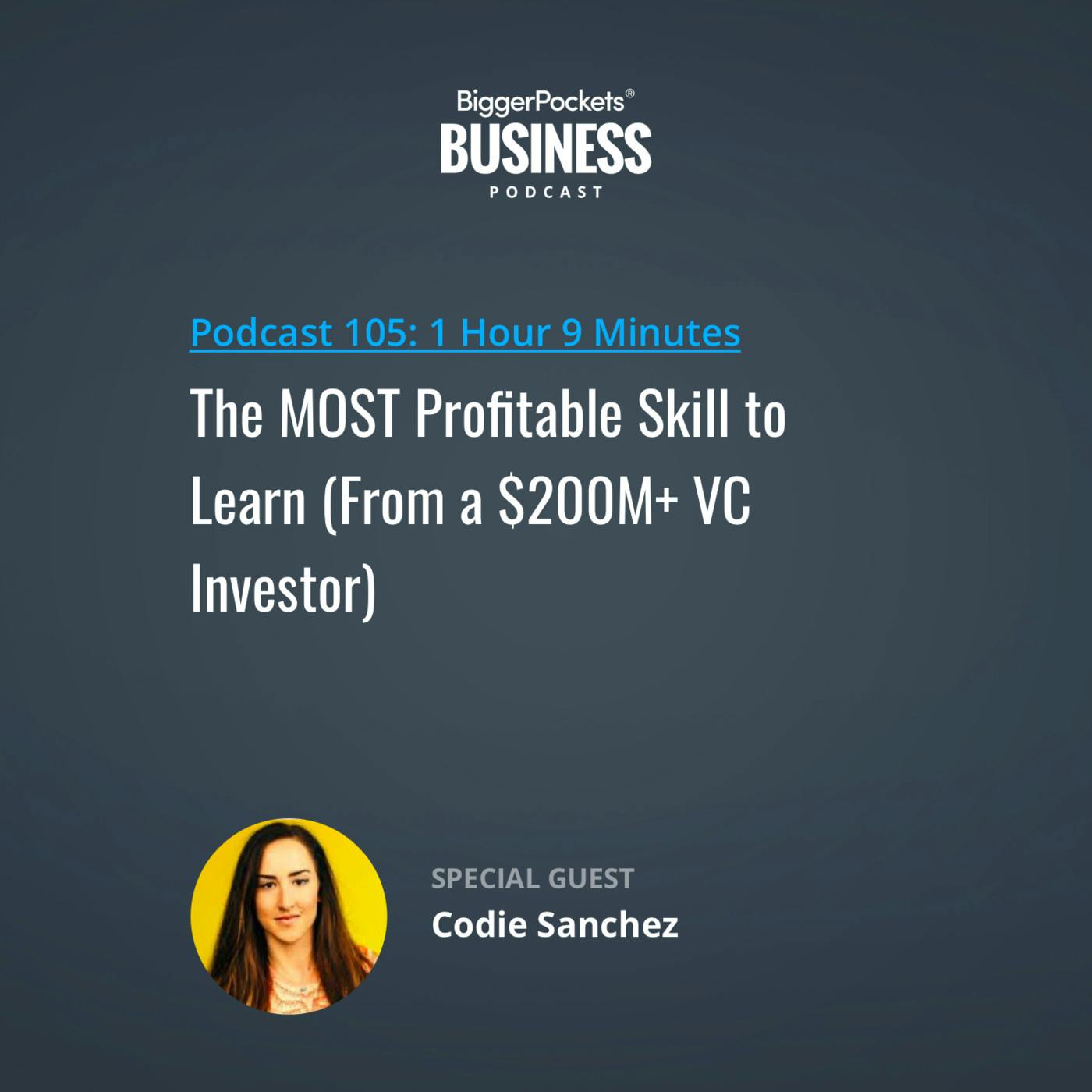
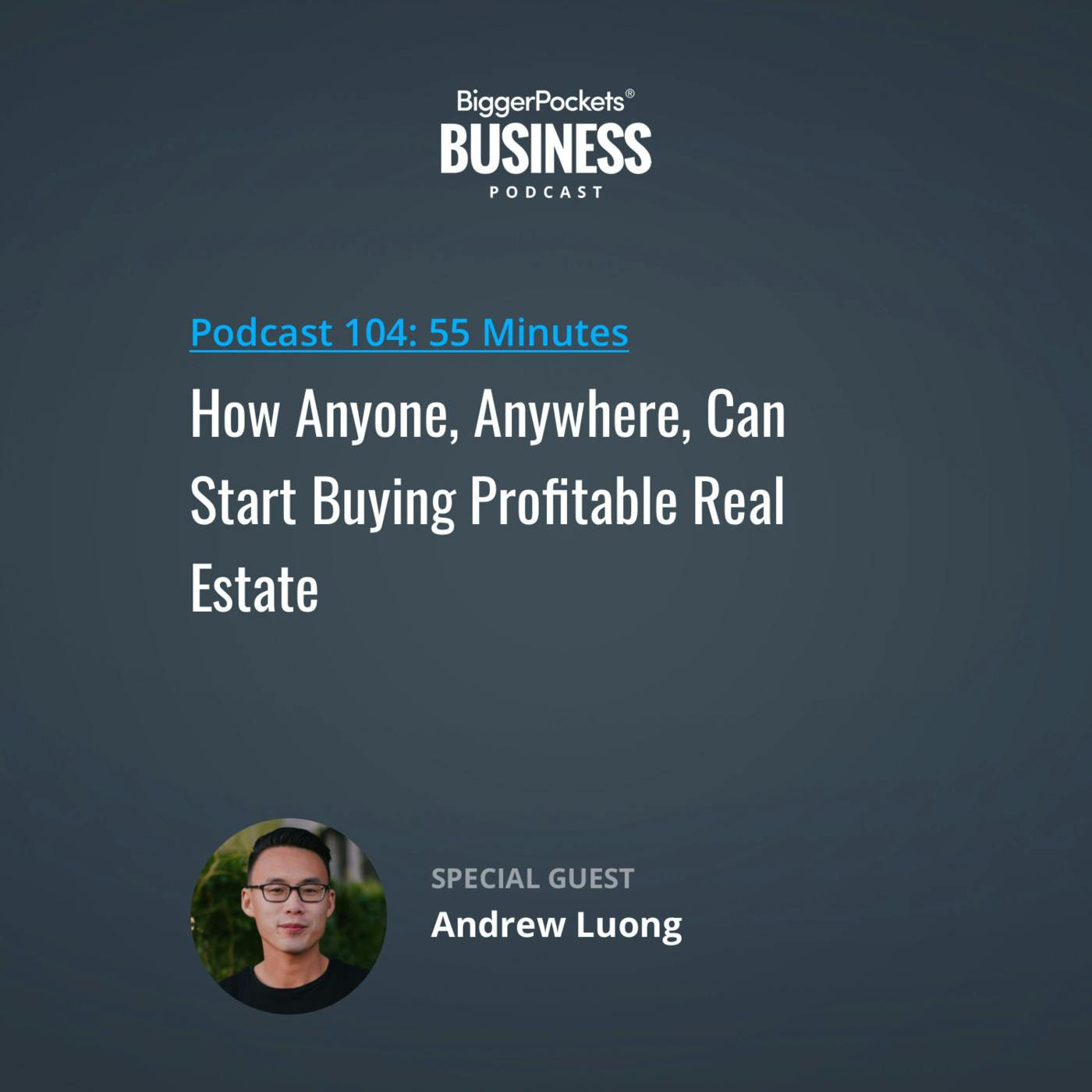
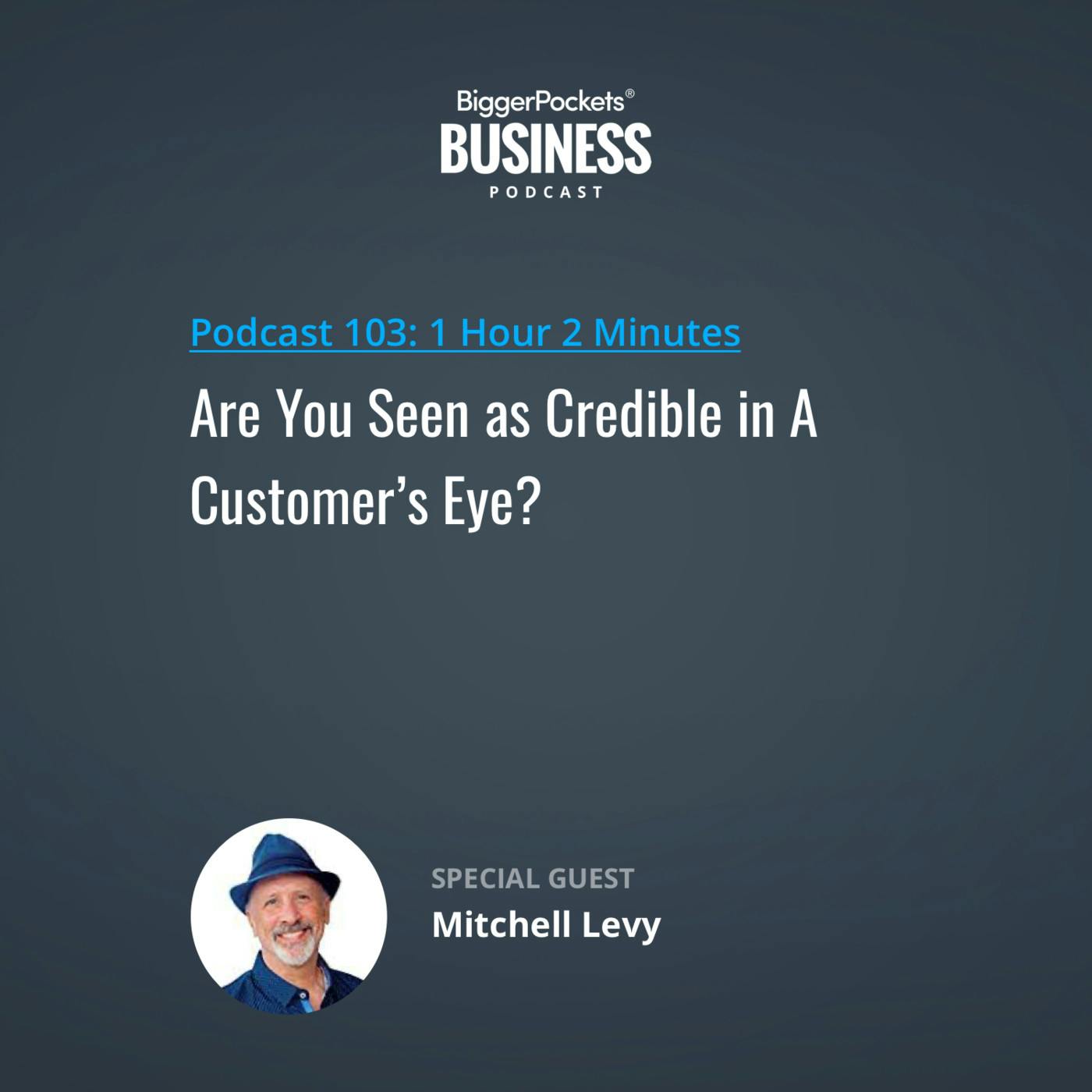
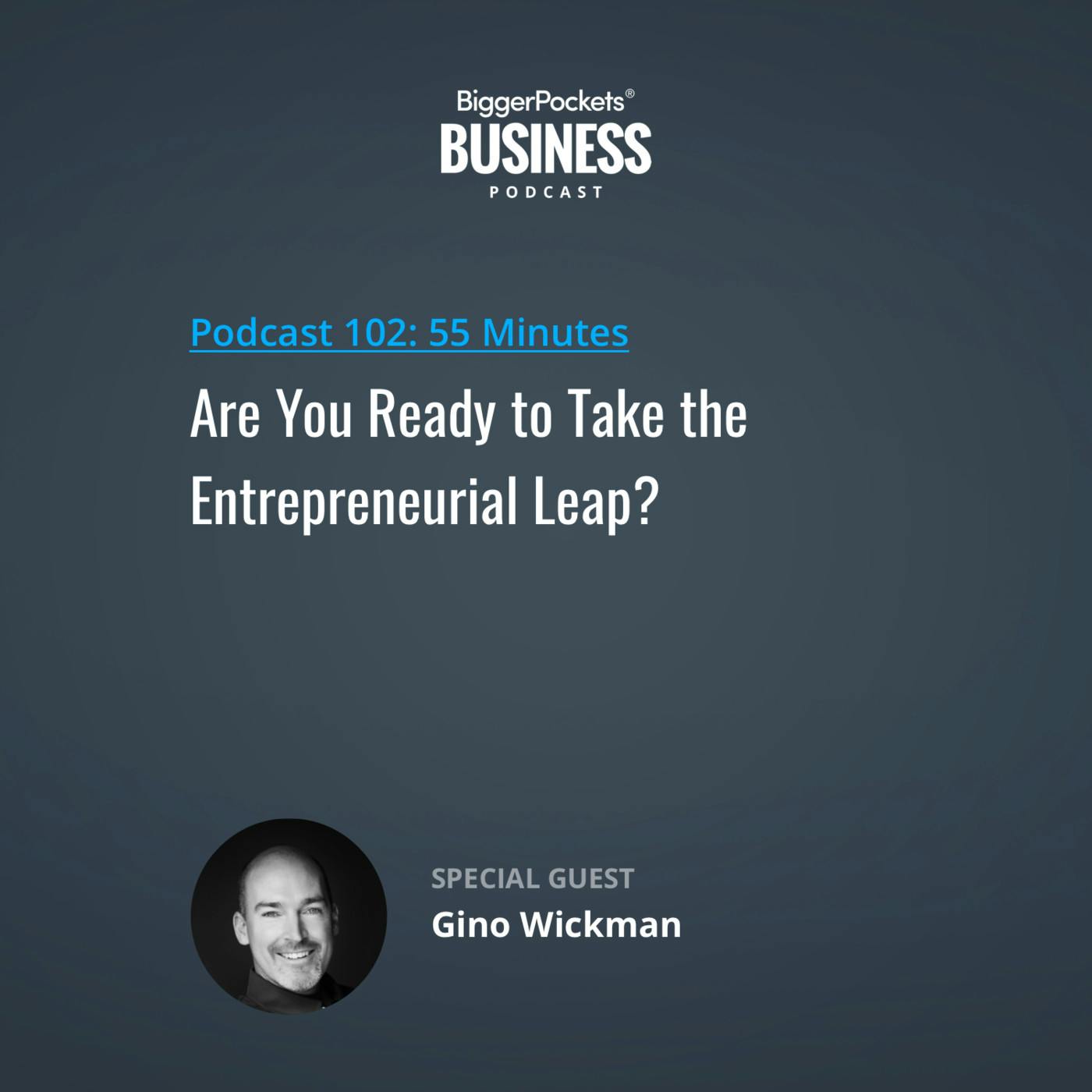
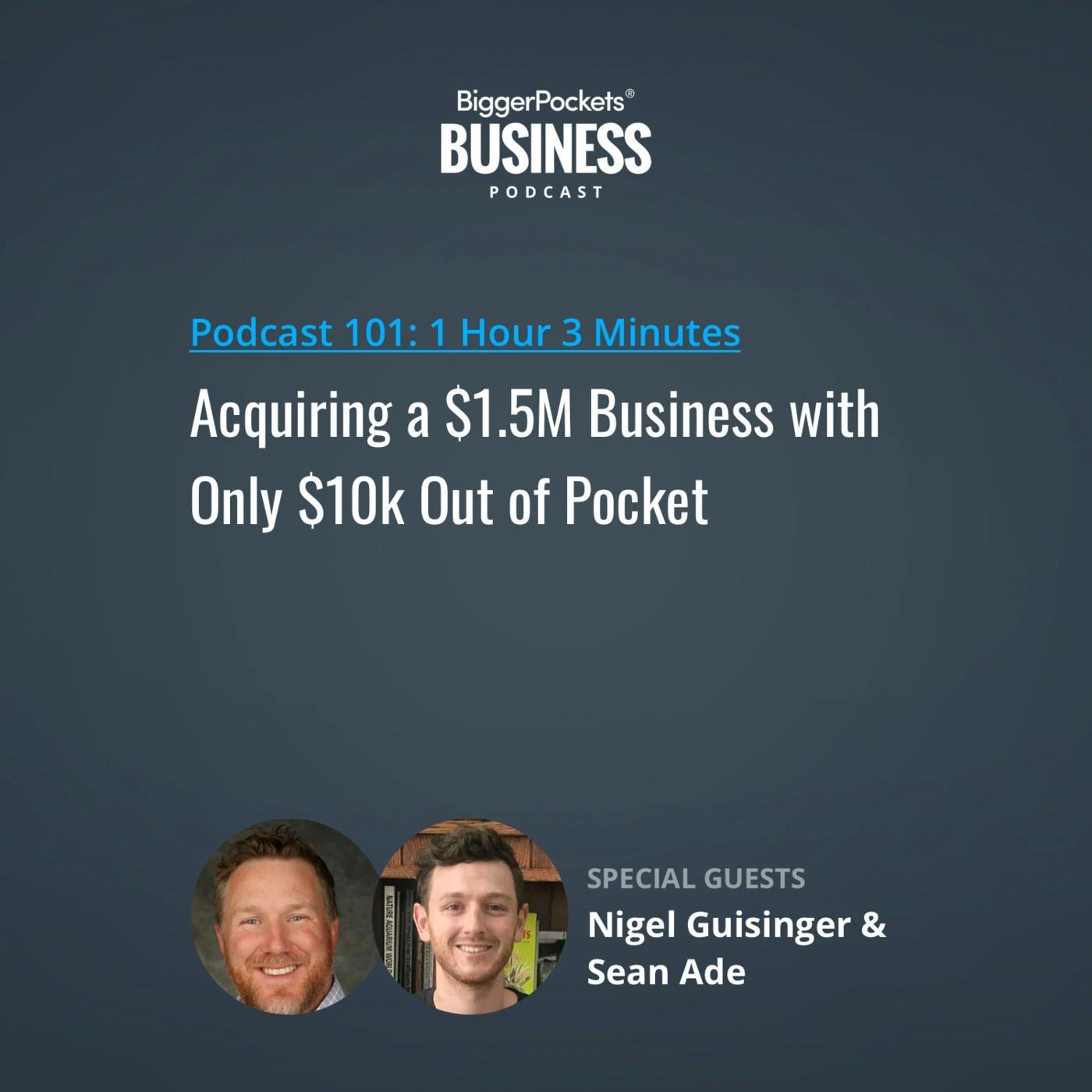
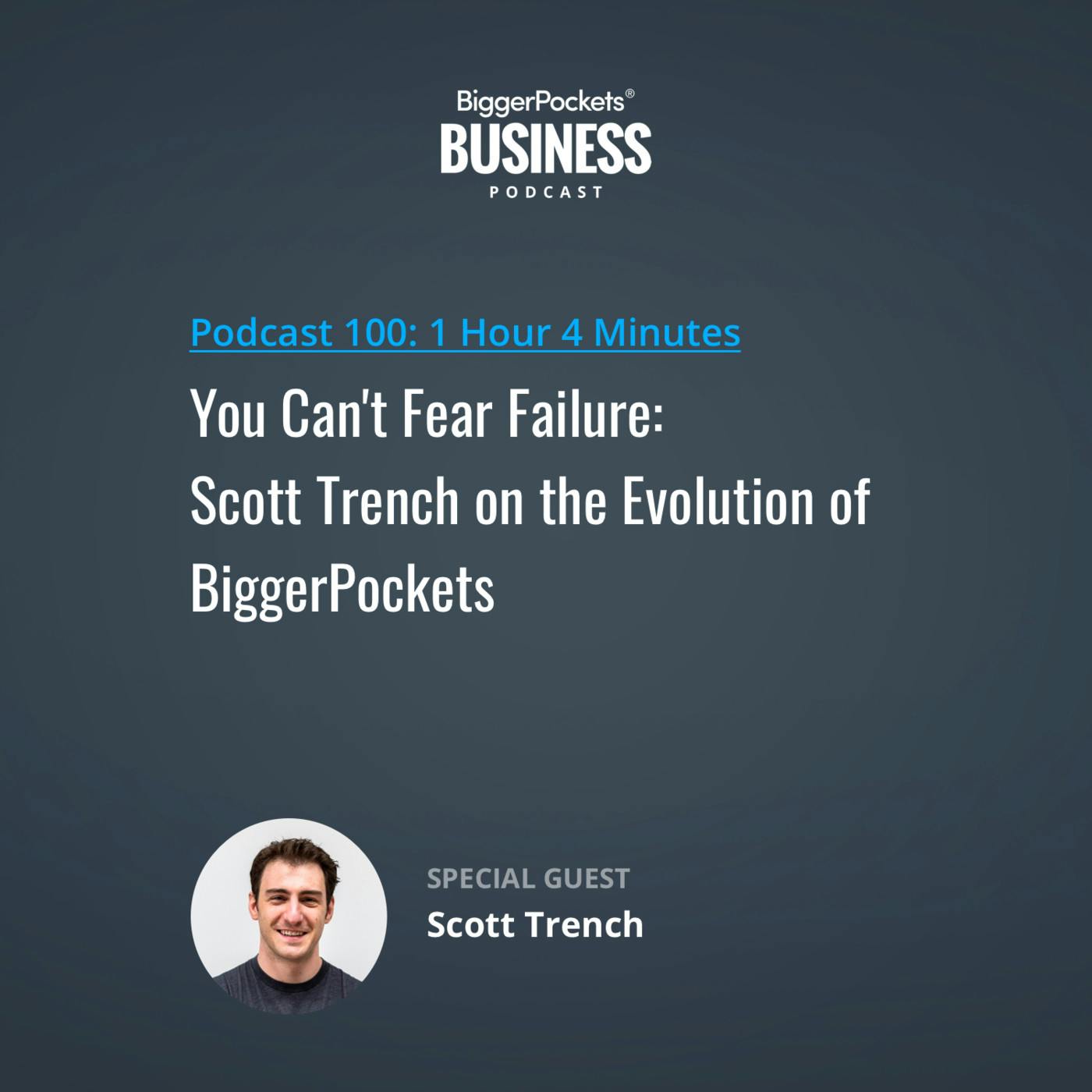
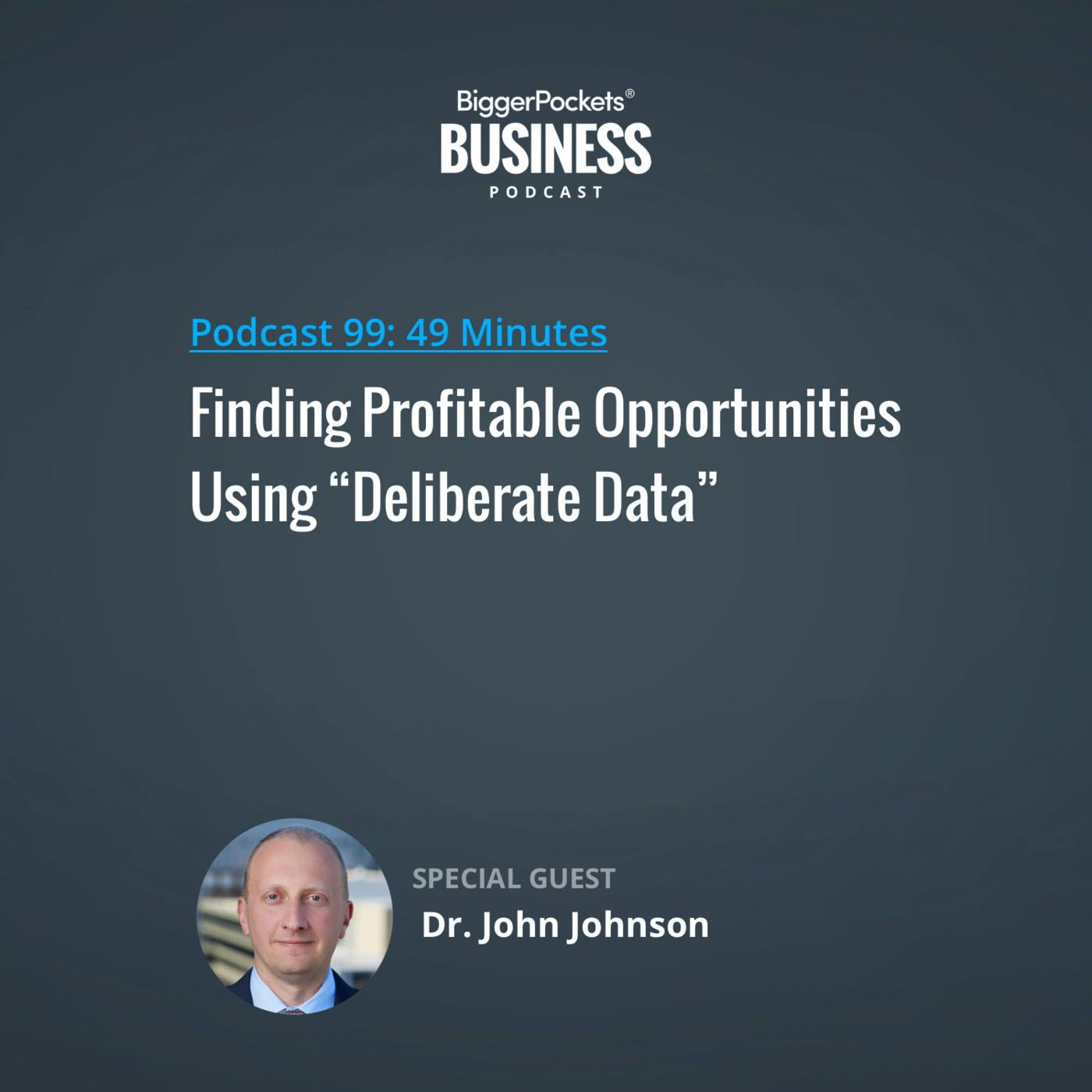
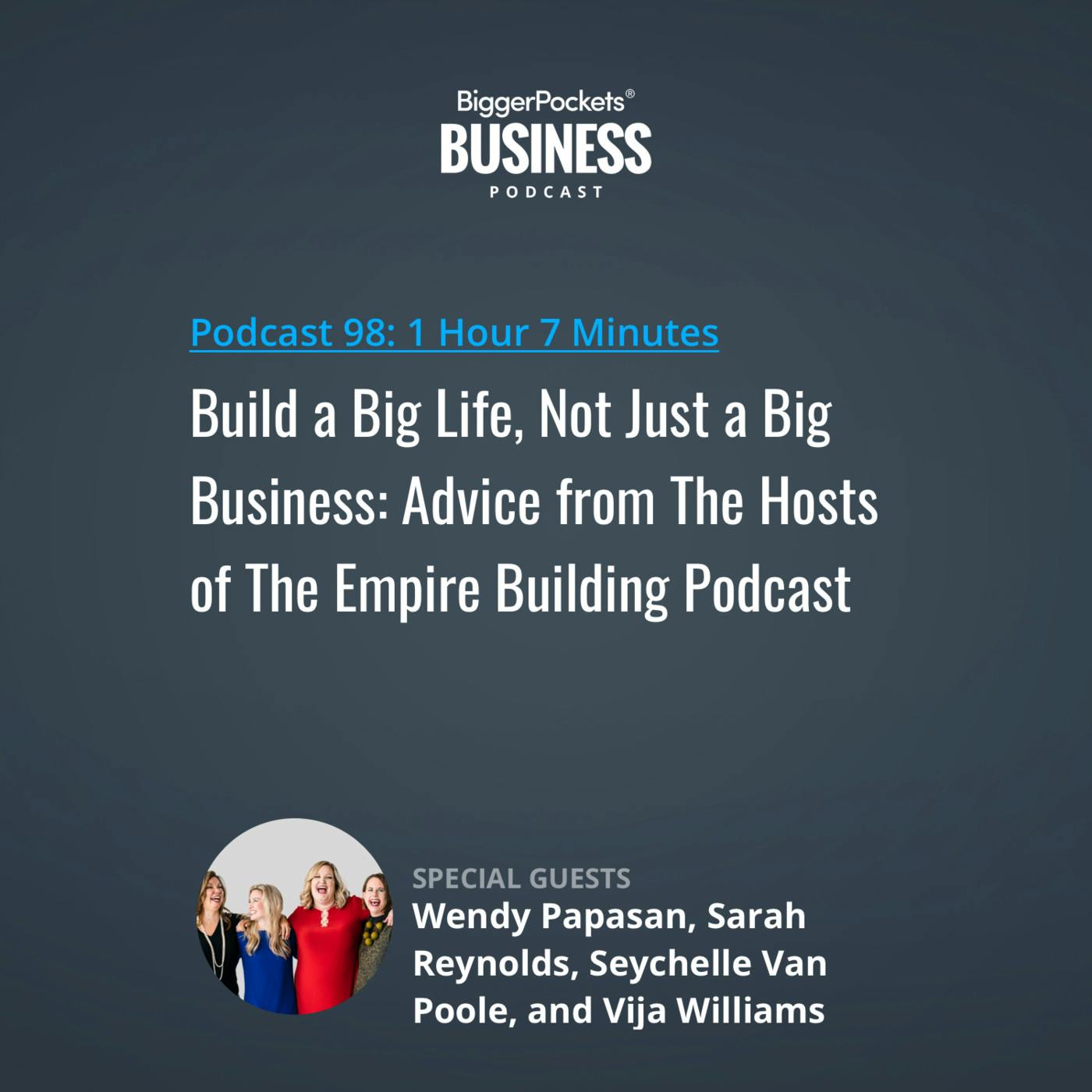
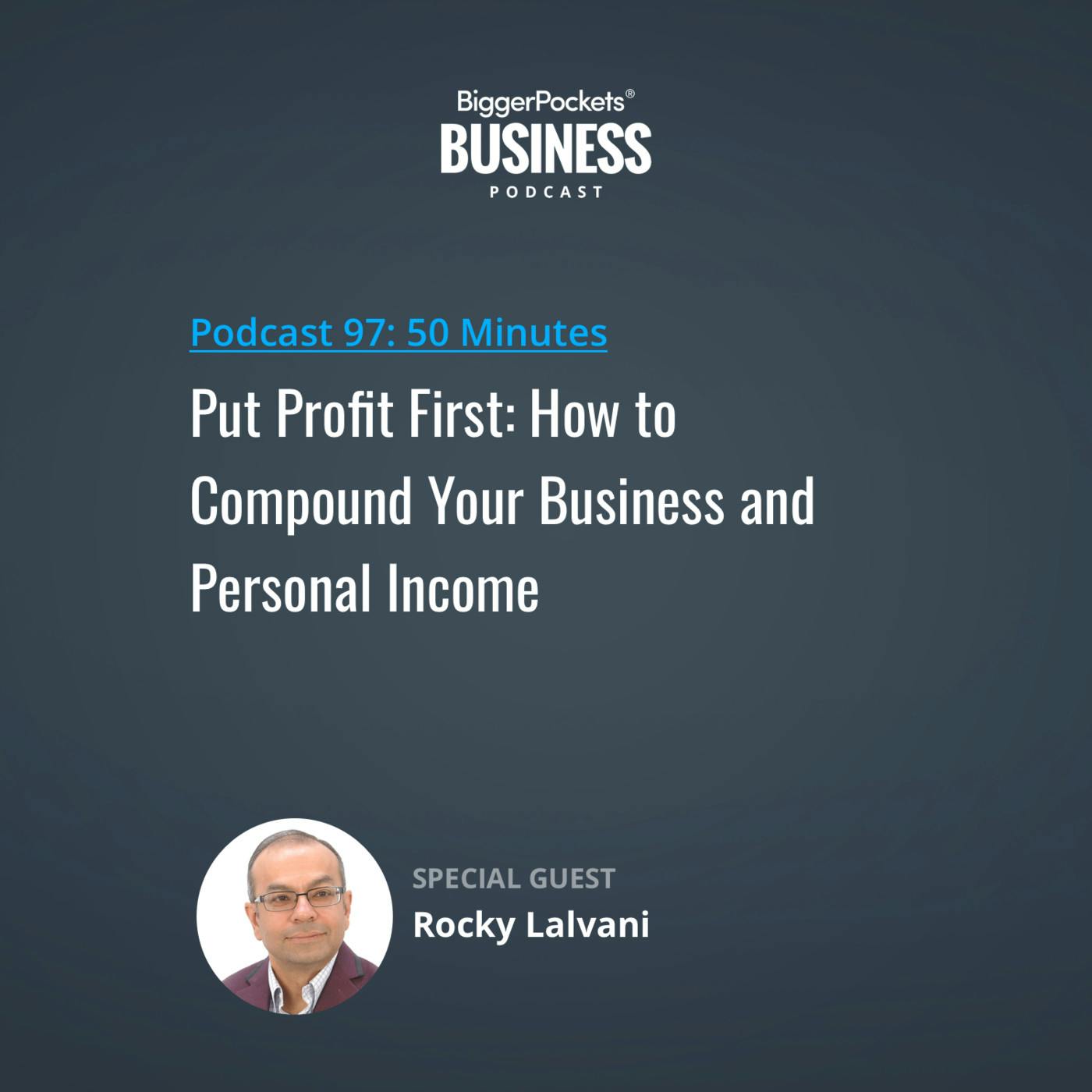
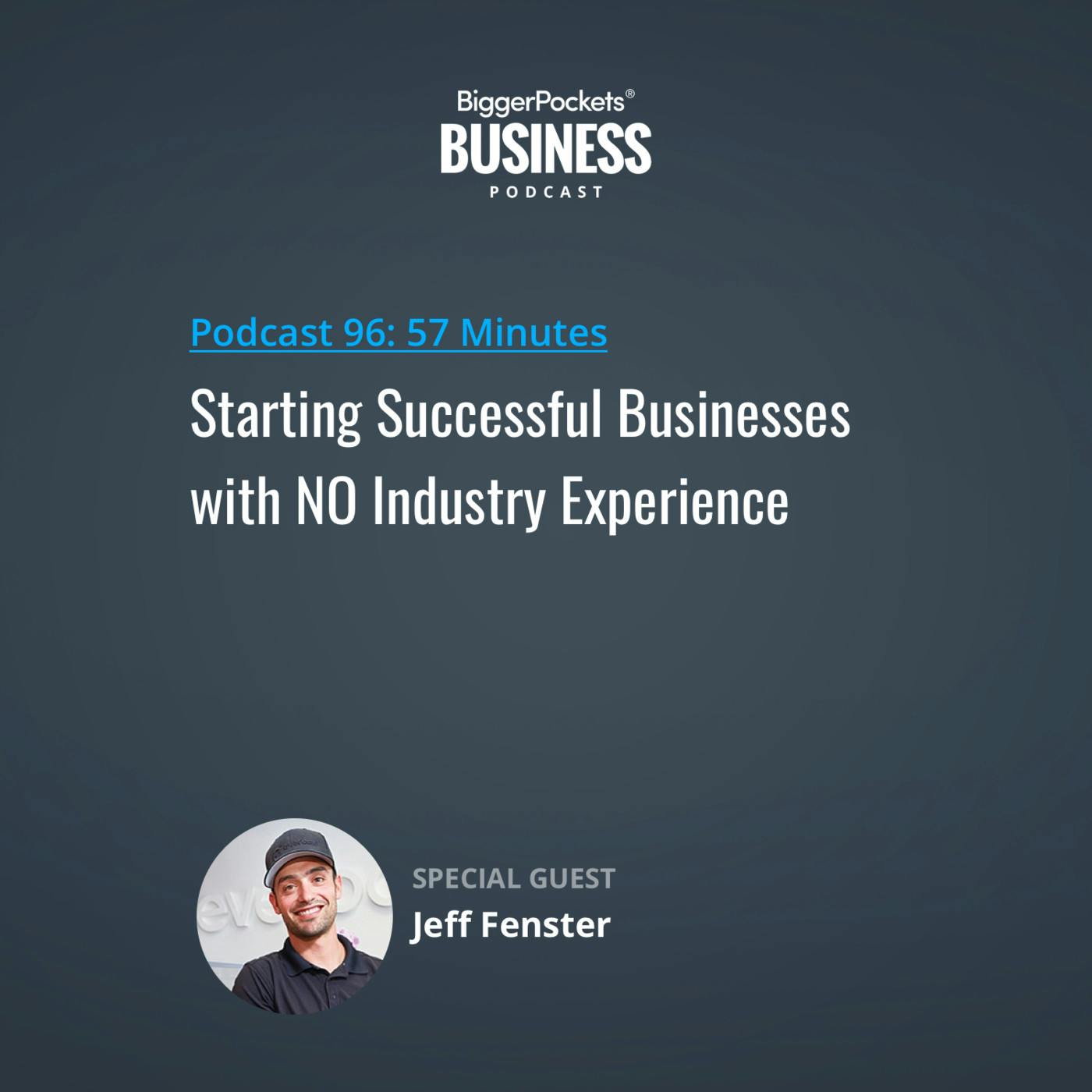
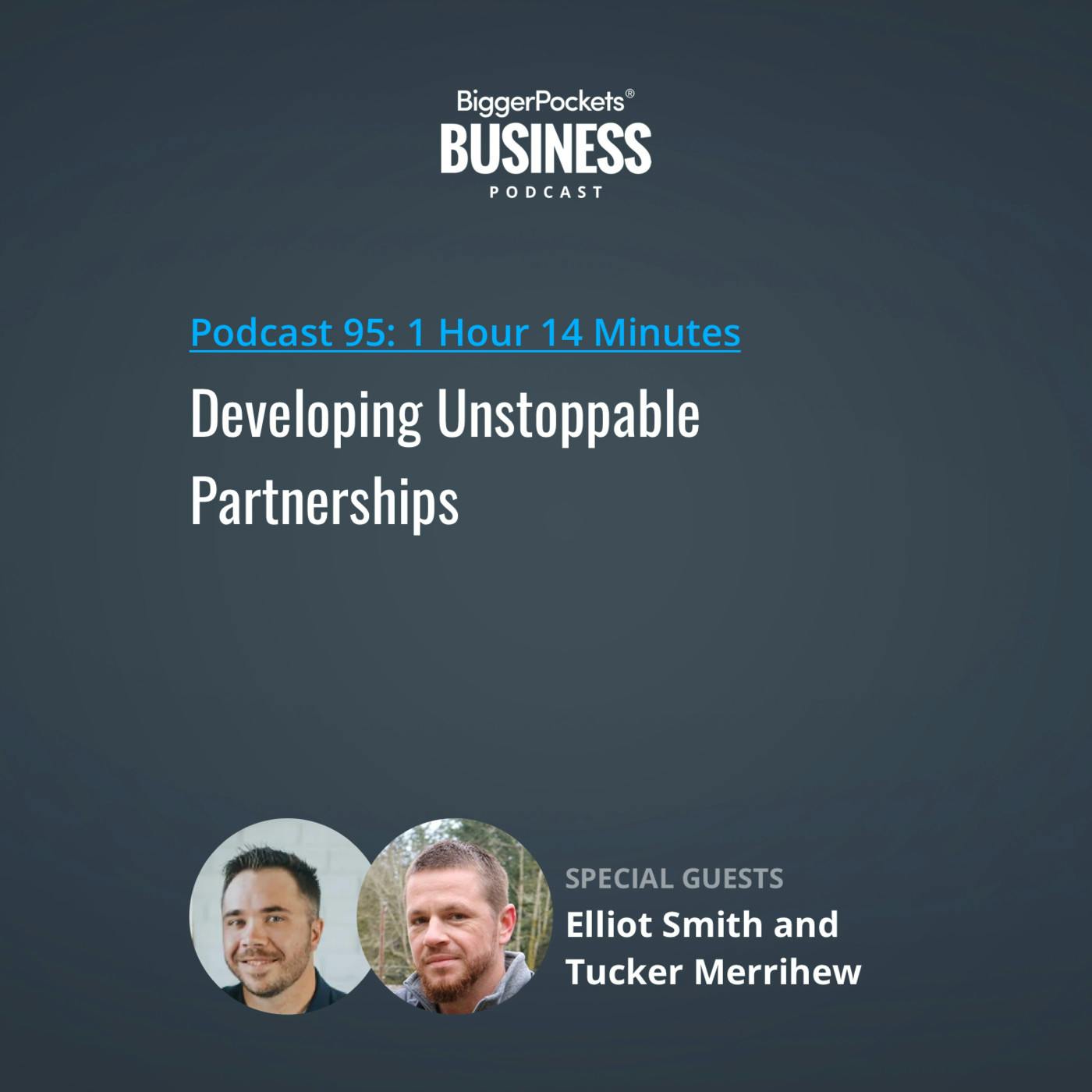
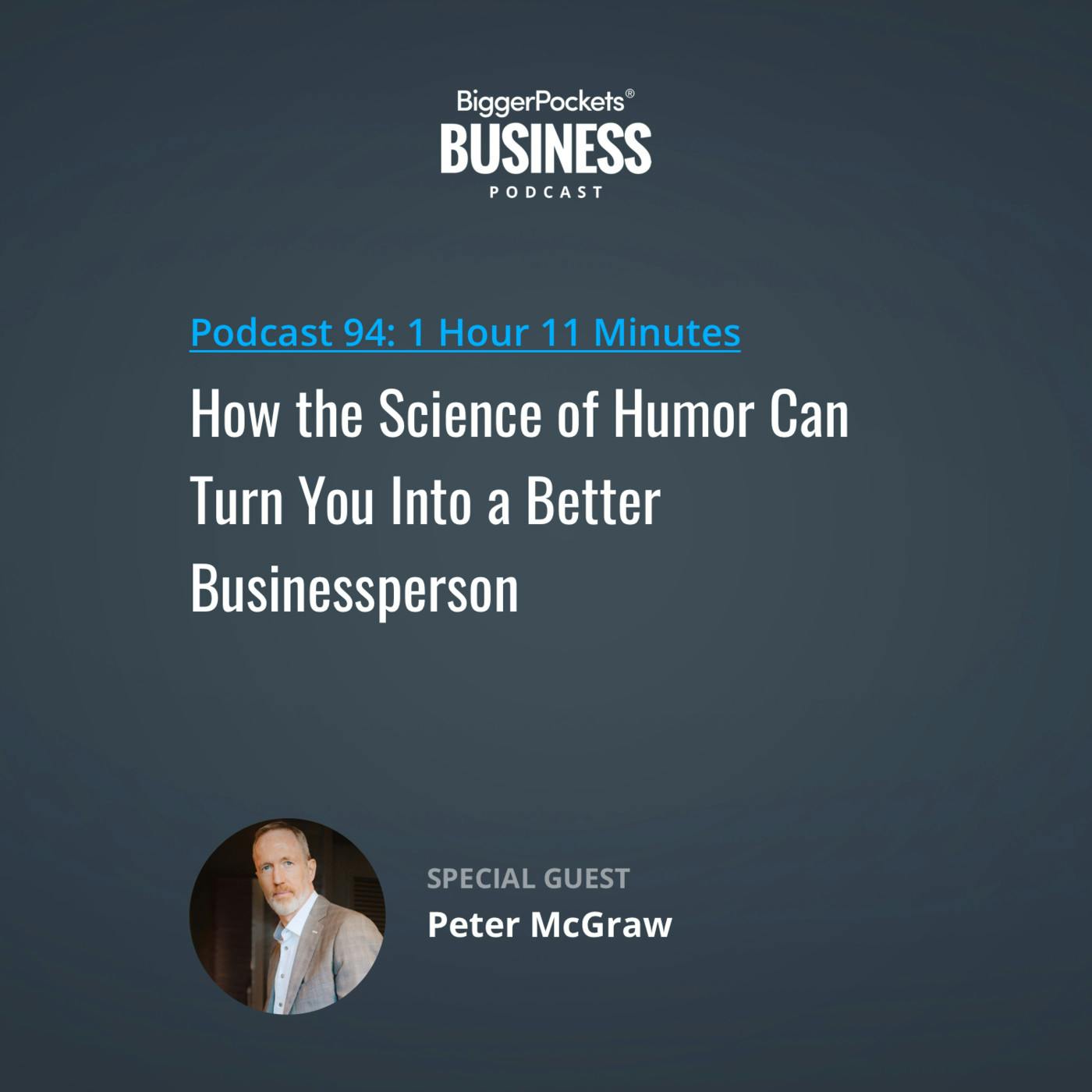
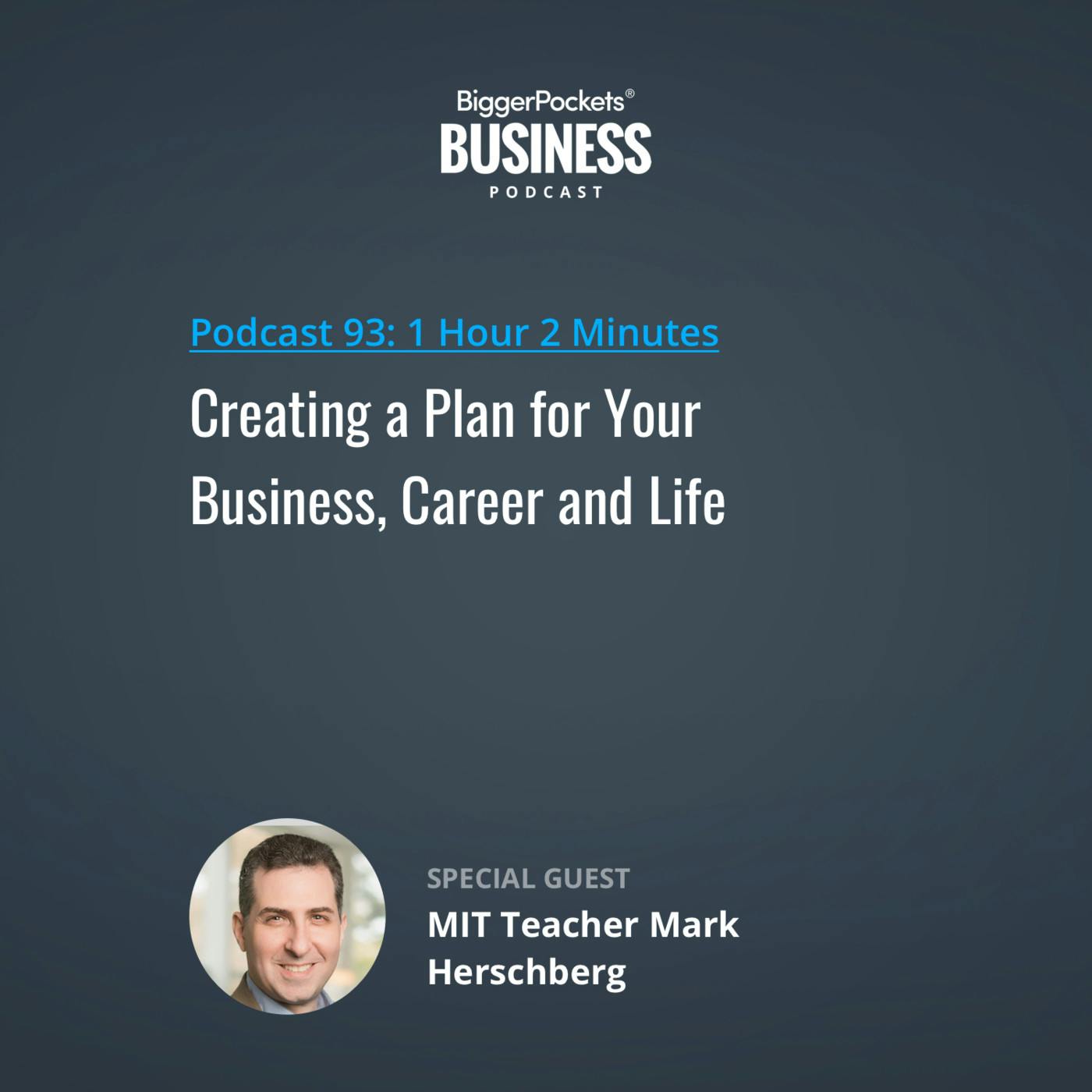
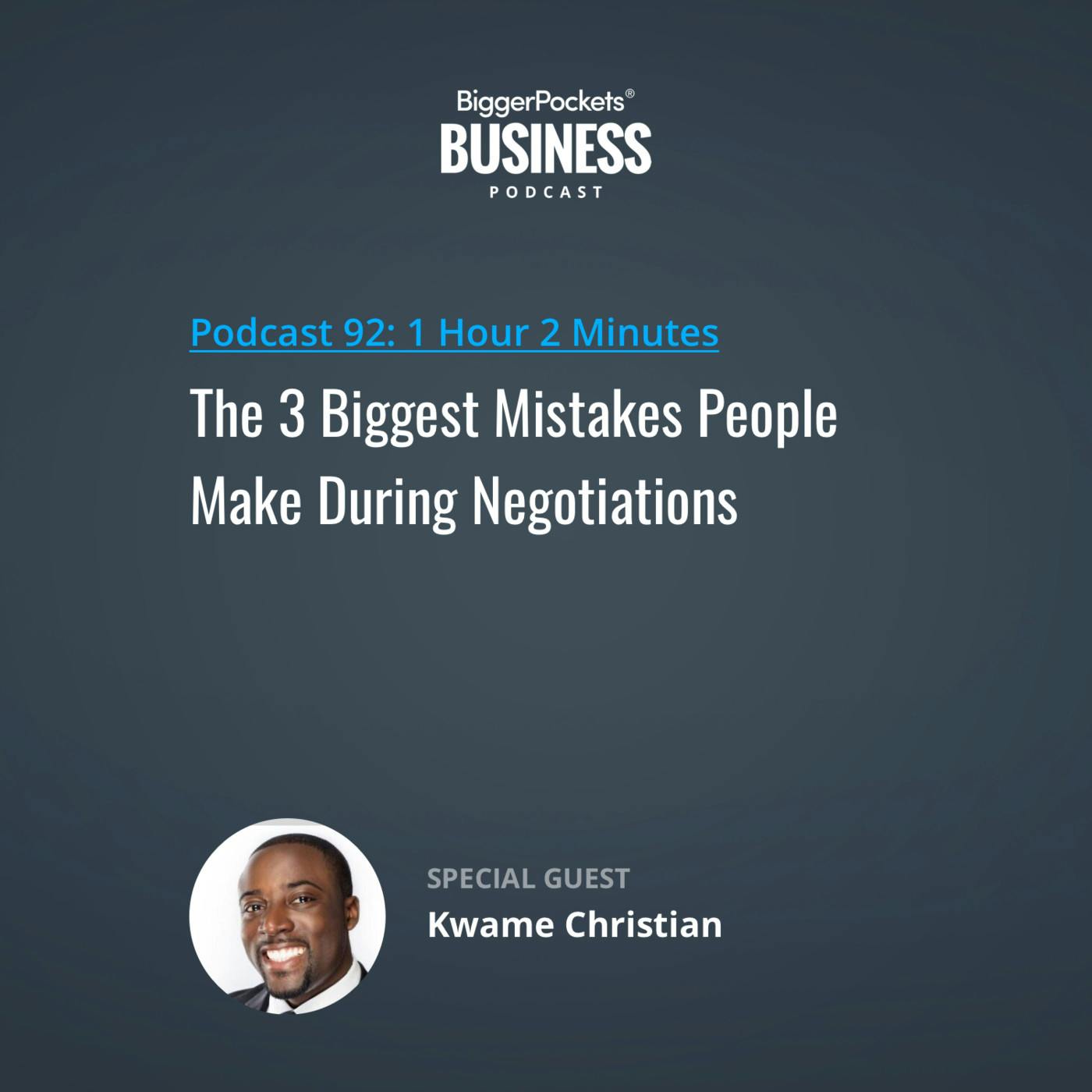
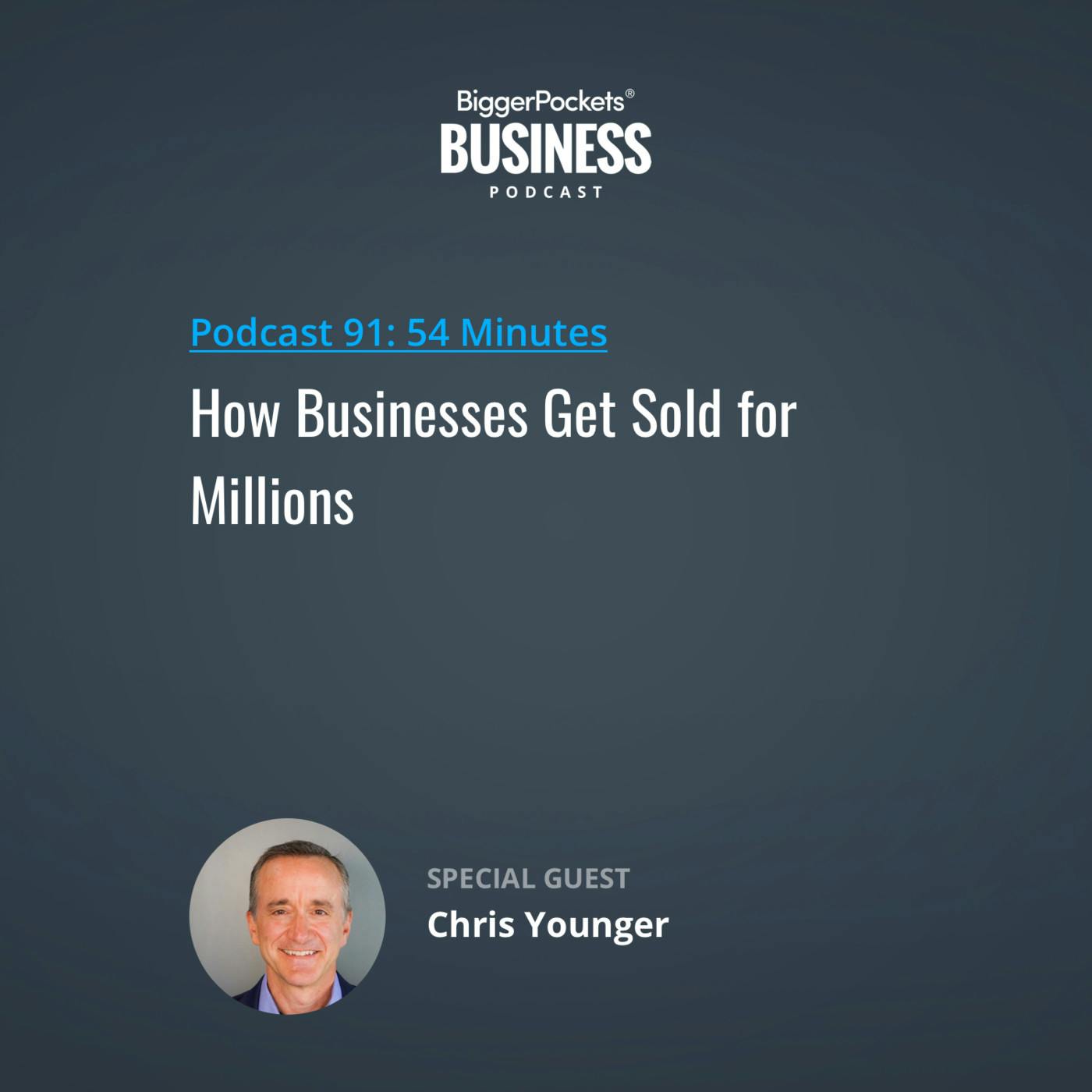
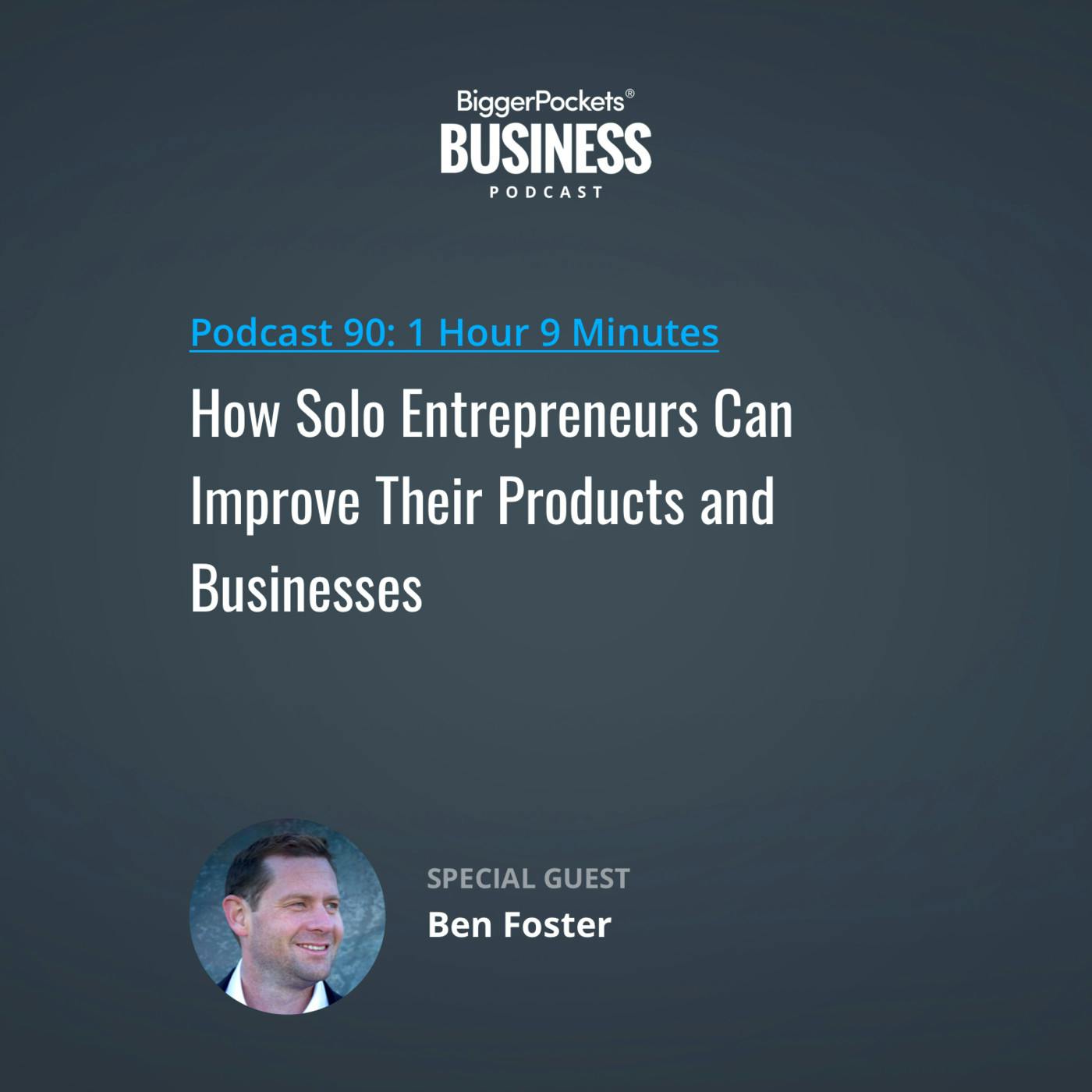
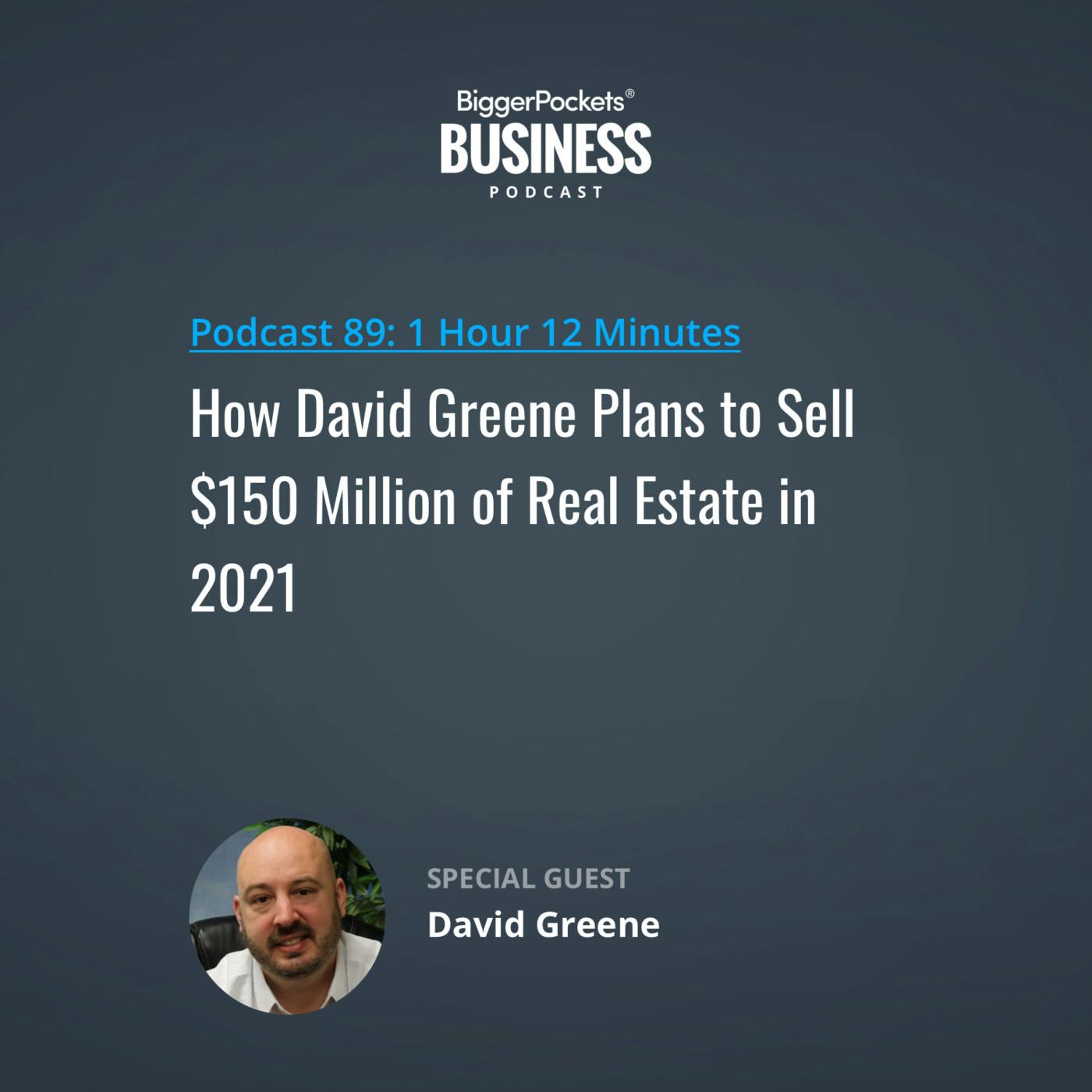
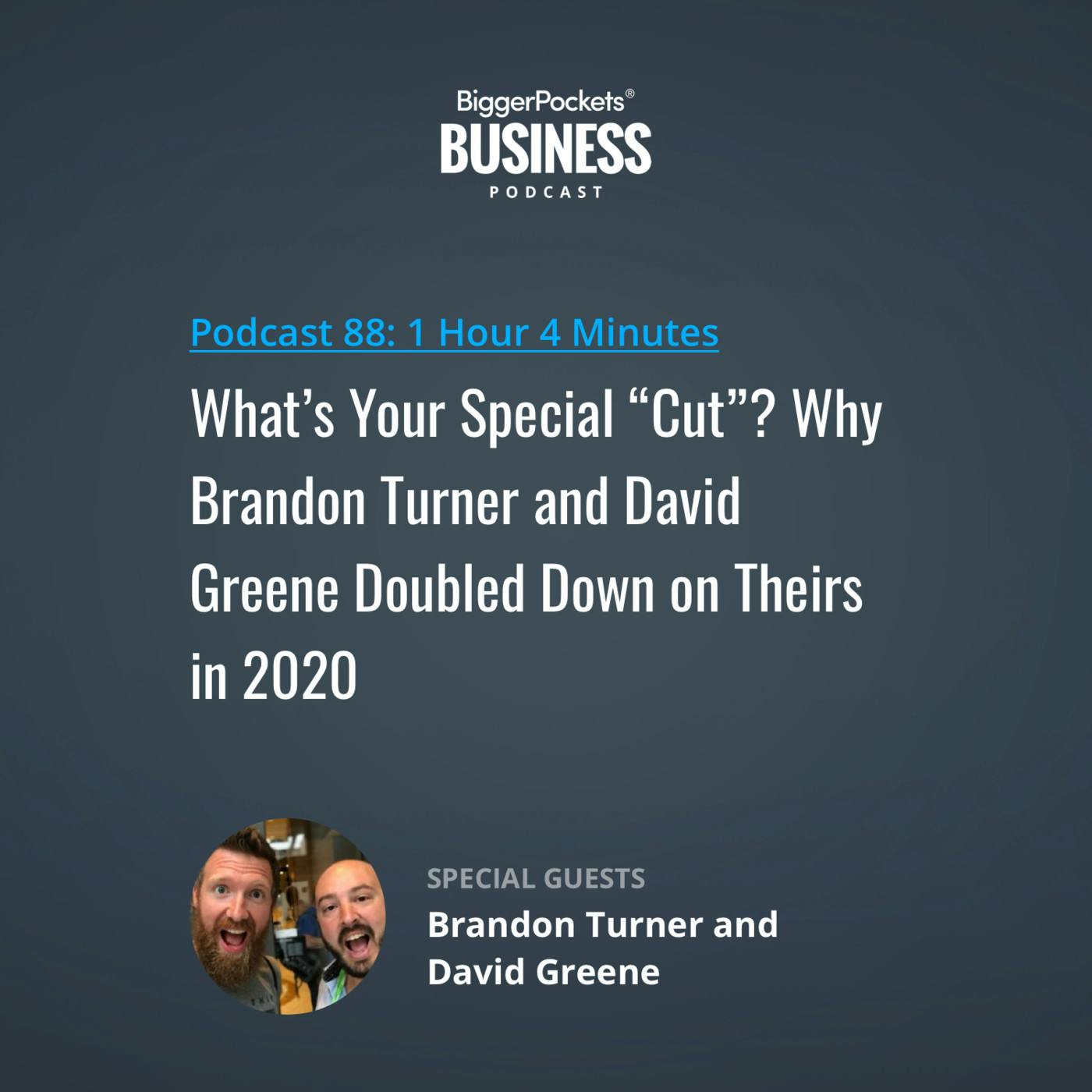
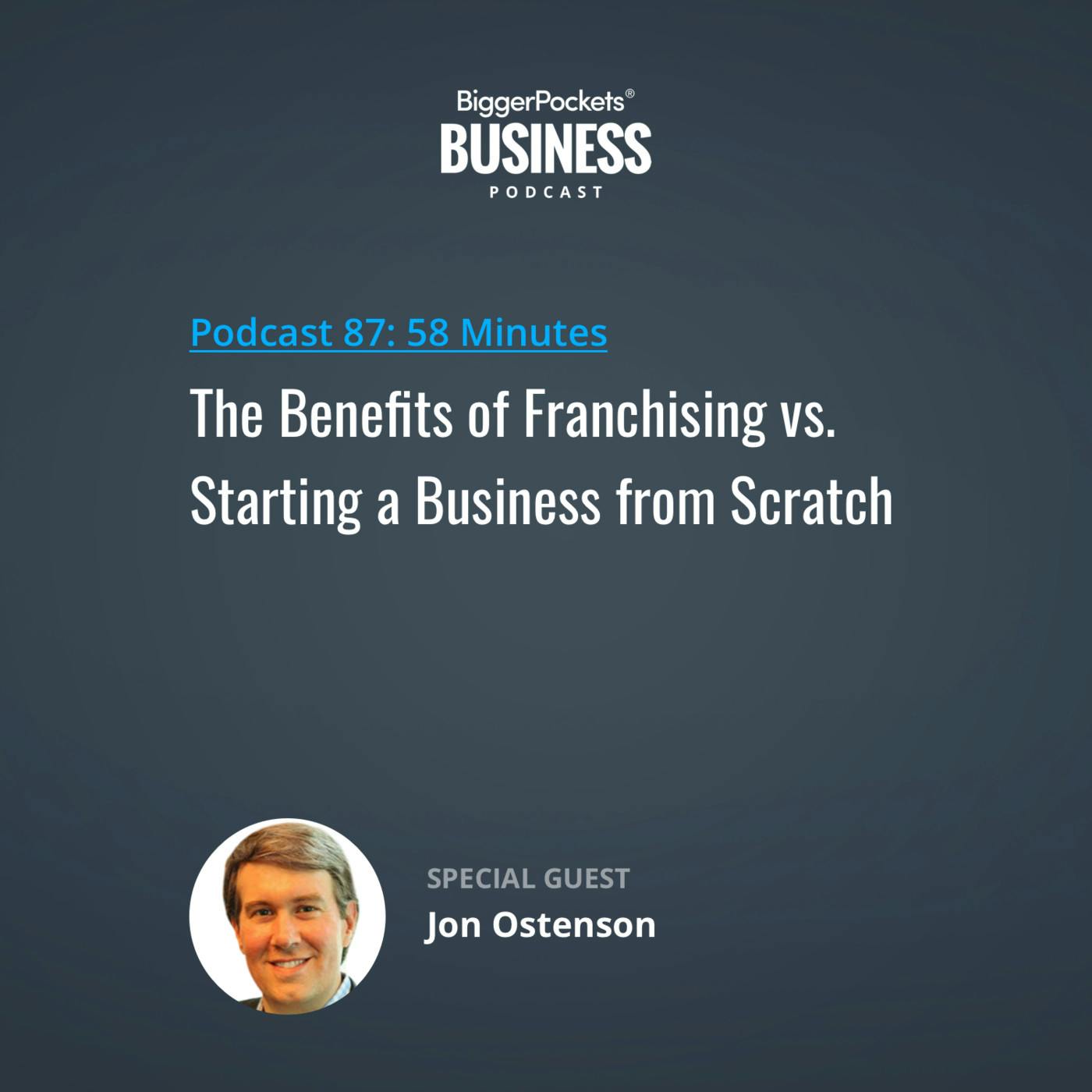
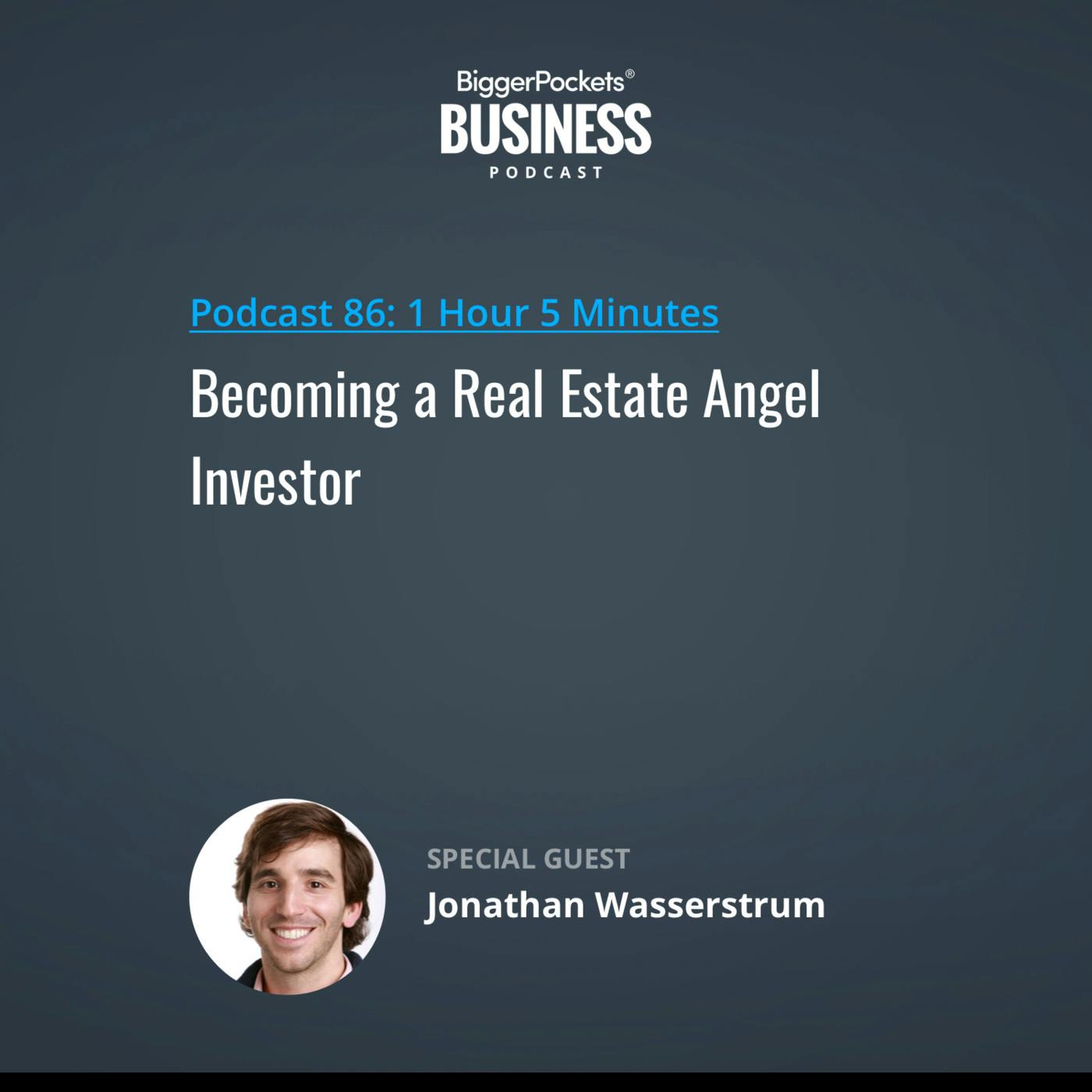



This is great thank you for sharing
Awesome podcast! I just started my first business on Feb 1st of this year, talk about poor timing. Guess I need to pivot quickly.
What an amazing podcast. Keep it up J & Carol!
I love BP Business podcast. It is extremely educational for a budding entrepreneur or a seasoned one, because the guests they interview have so many insights from industries across the spectrum. Thank you for the content!
Loved this Interview! Employ a governor on your time commitments: “my business partner is my spouse, let me run this by her before I commit” or you can use your calendar: “I’ll need to consult my calendar to make sure I’m available”
love this episode!!!!!